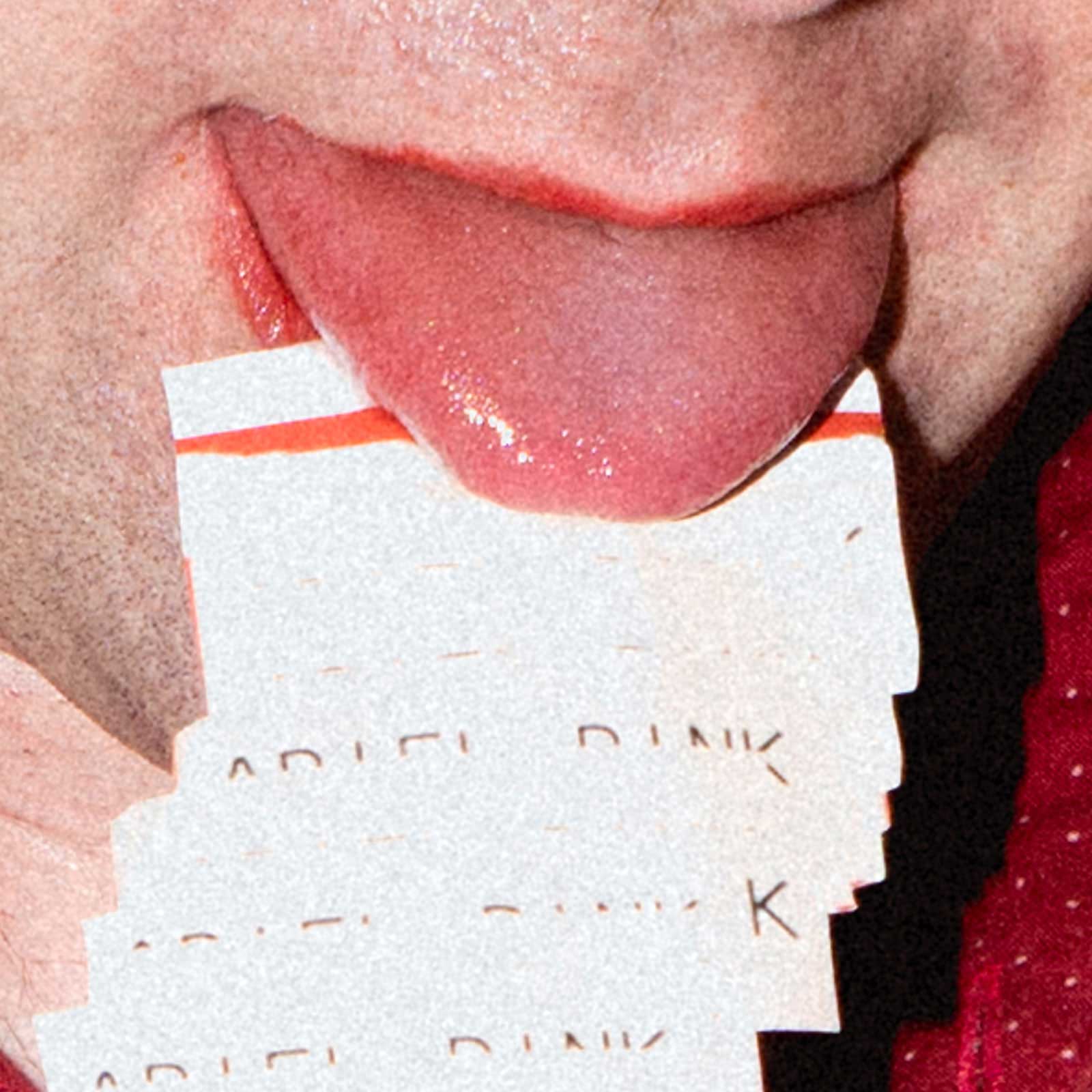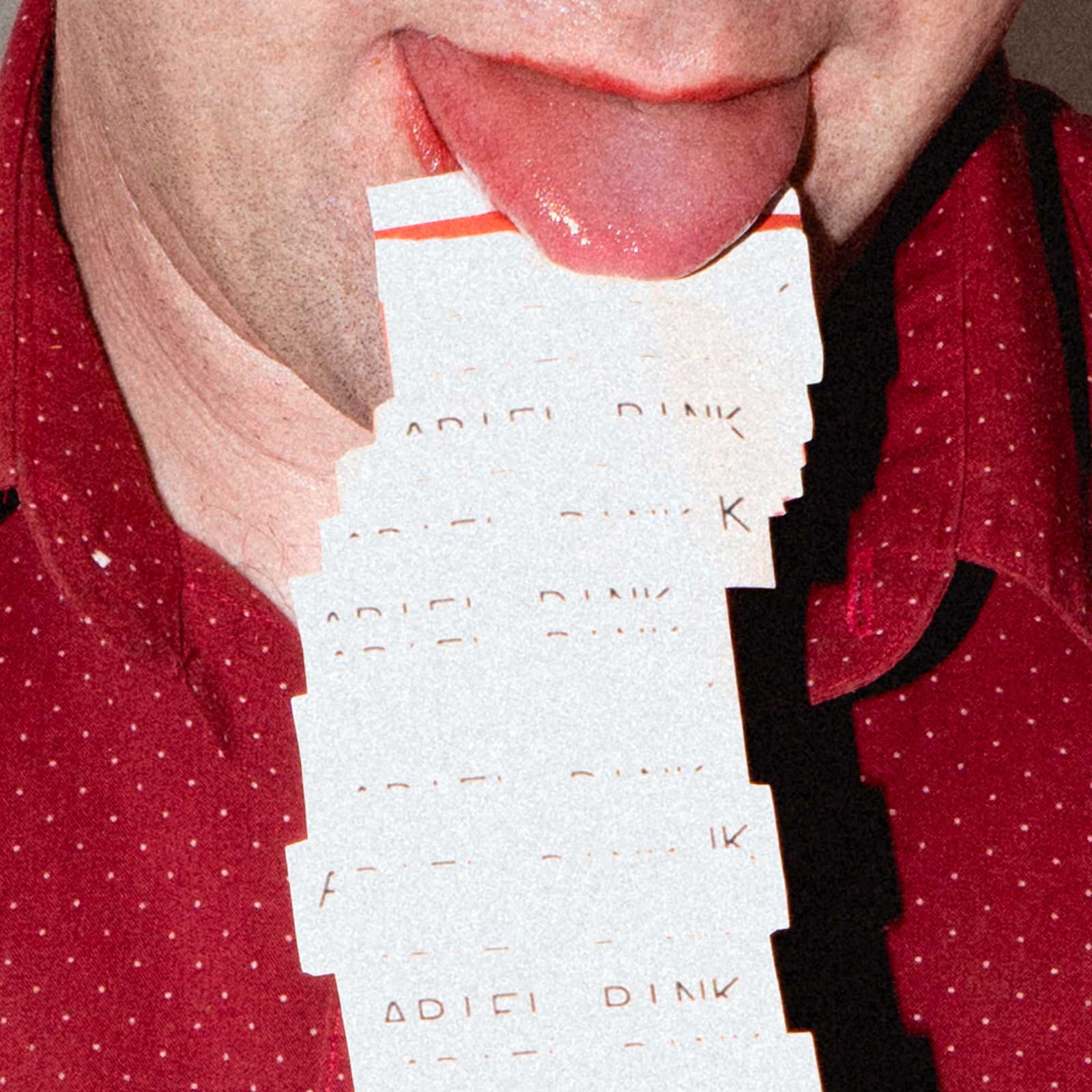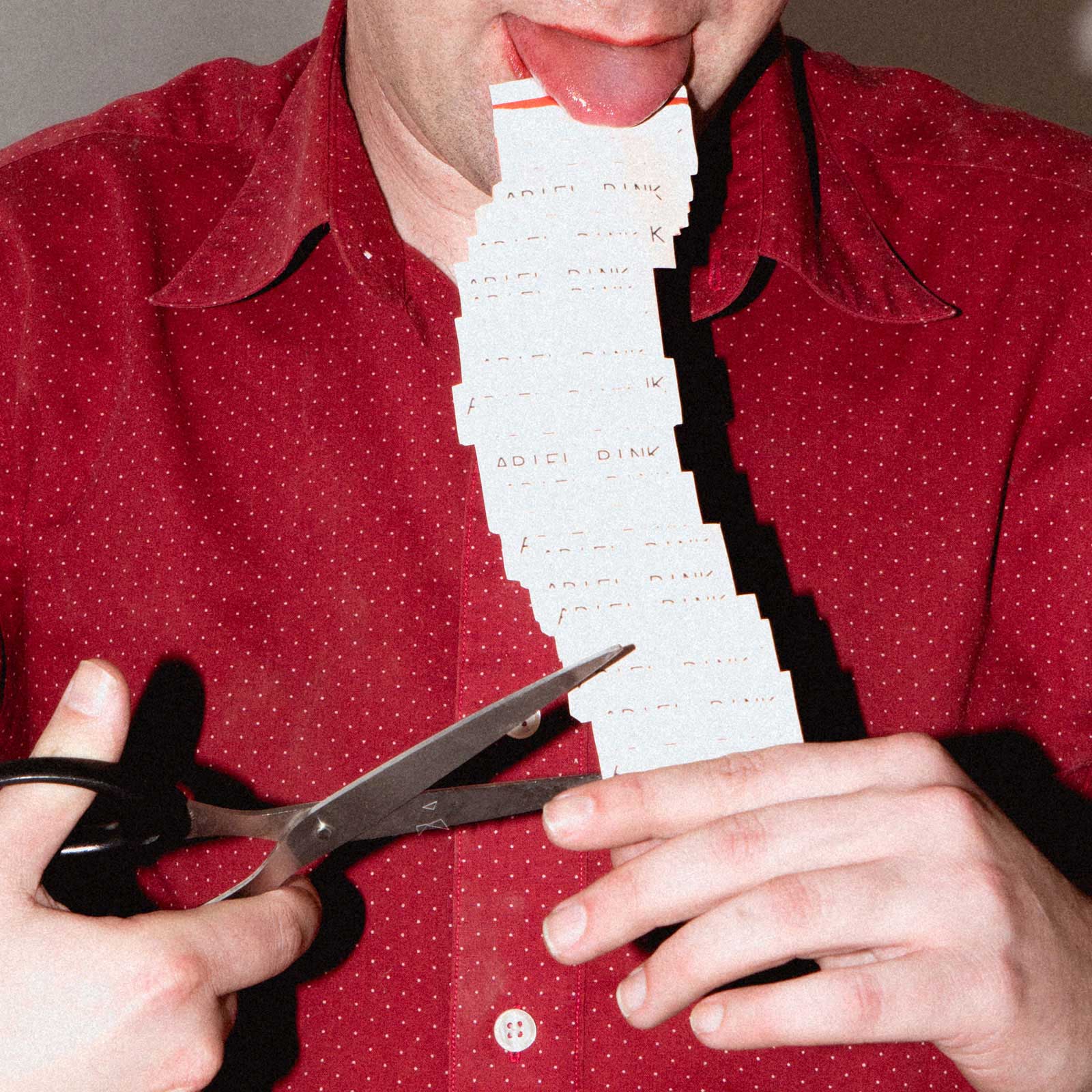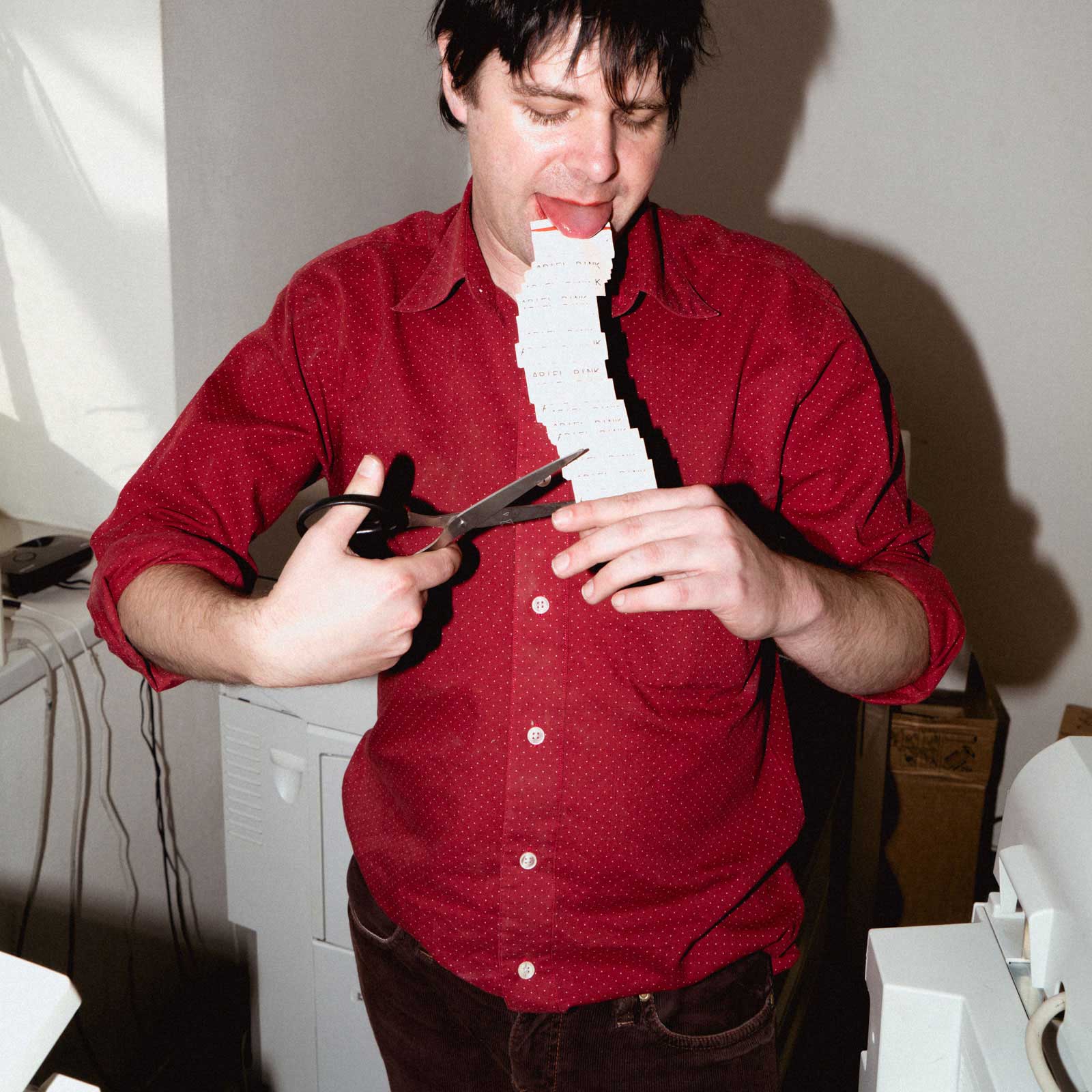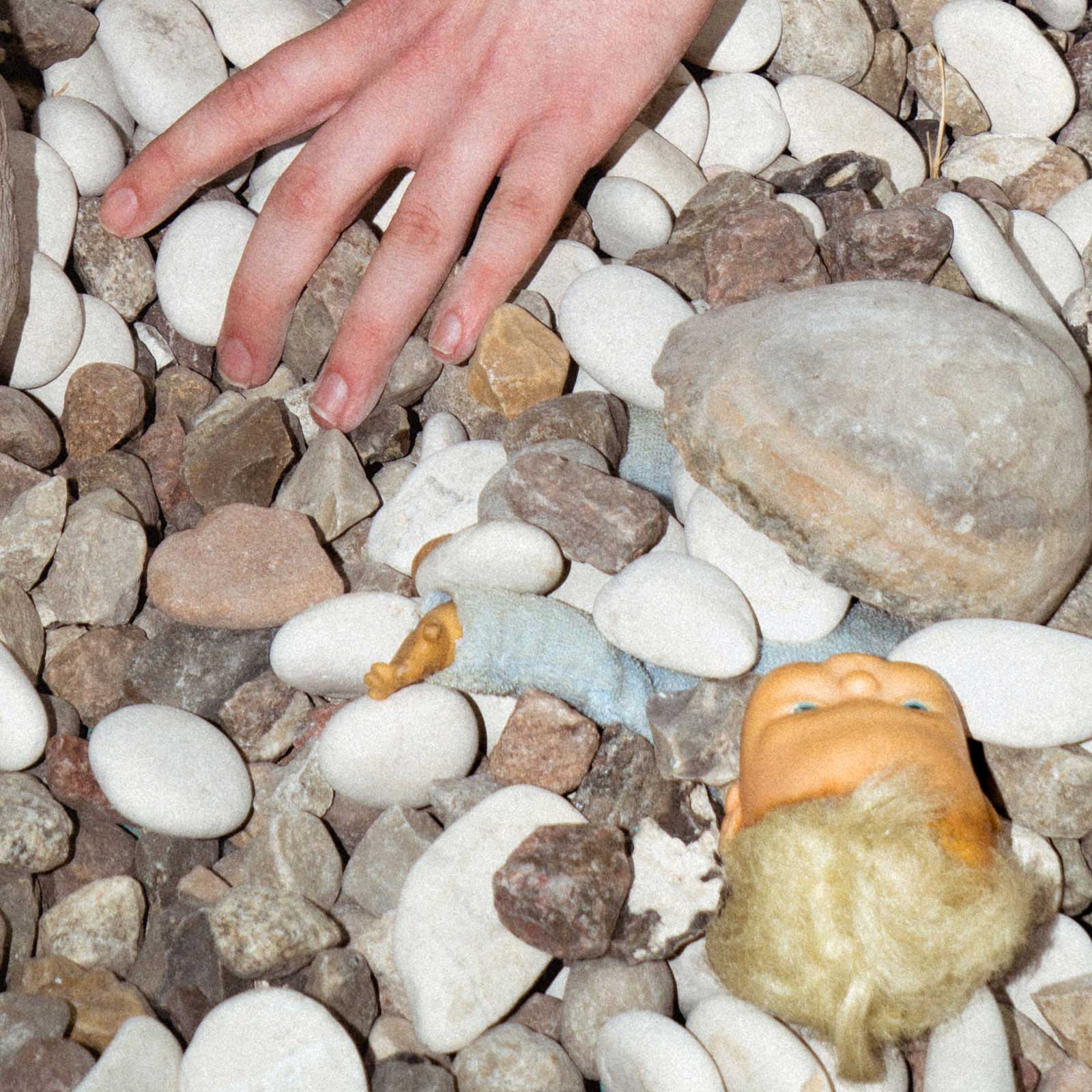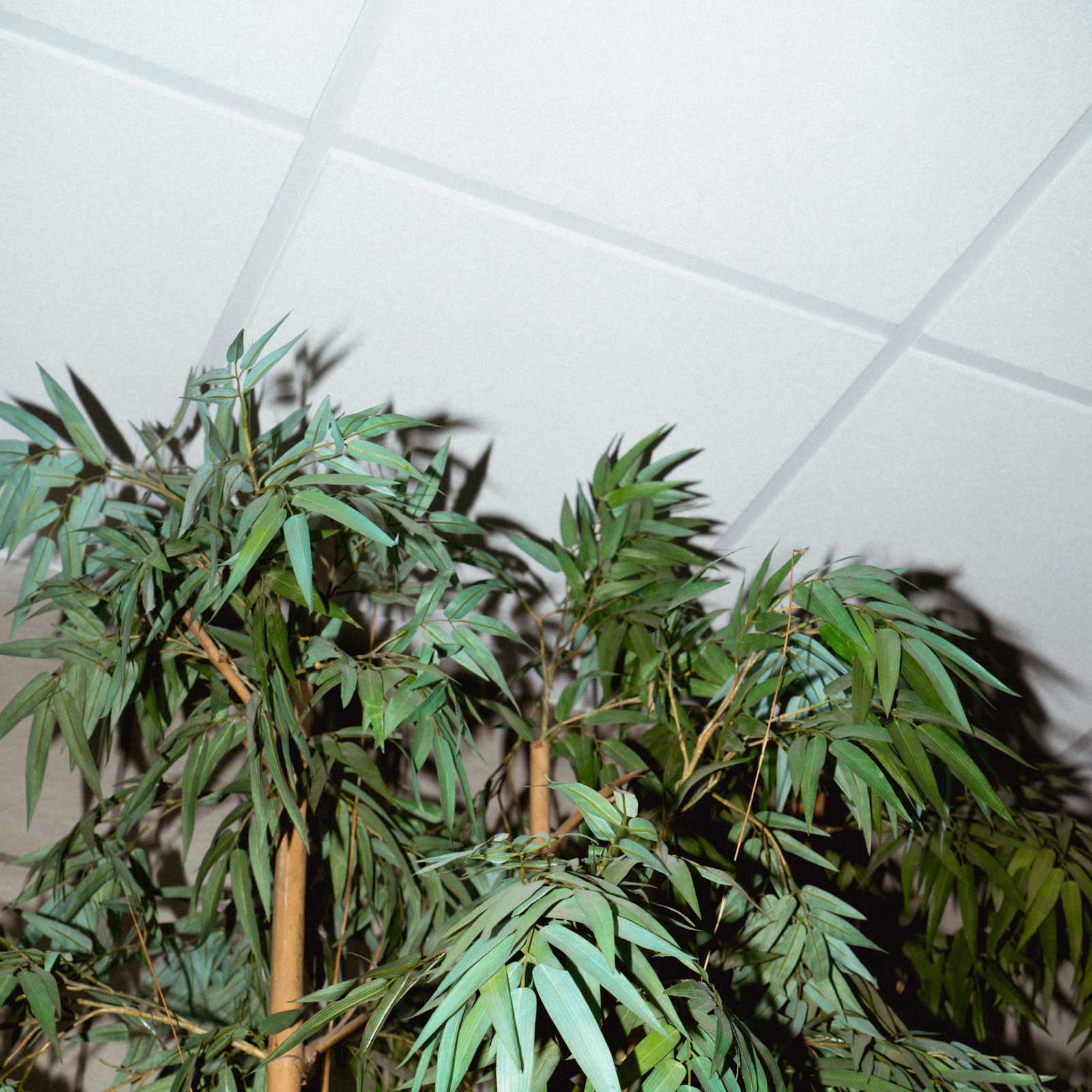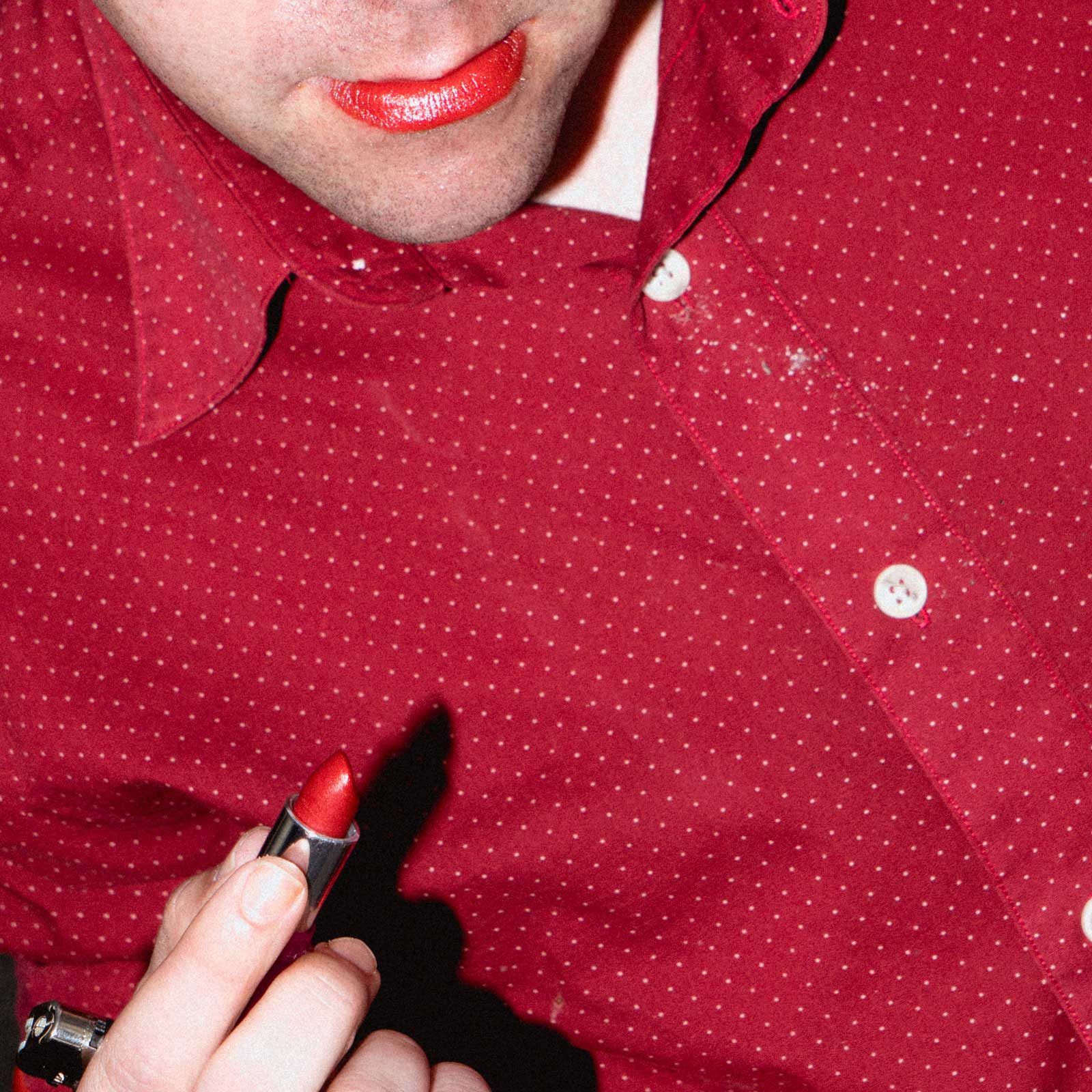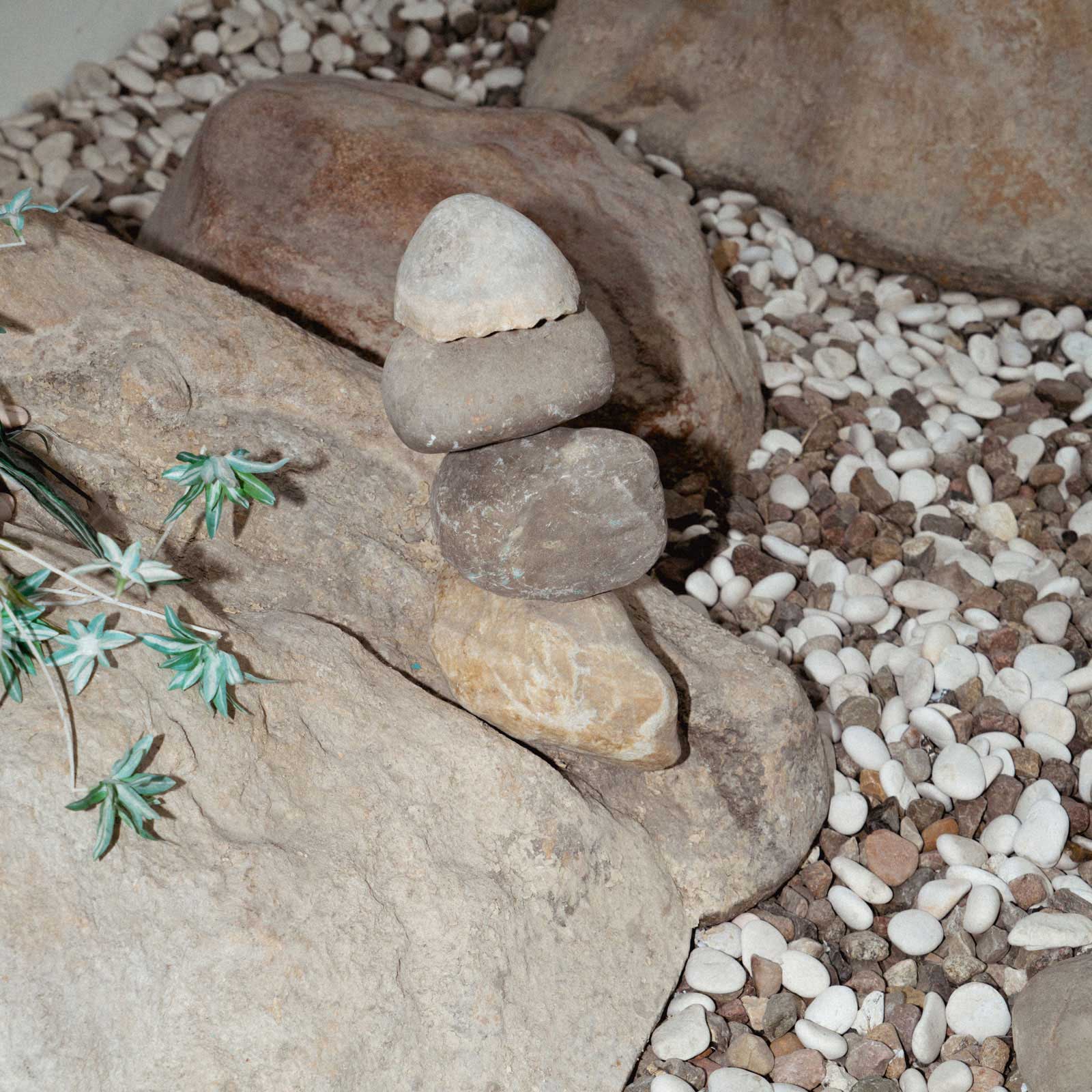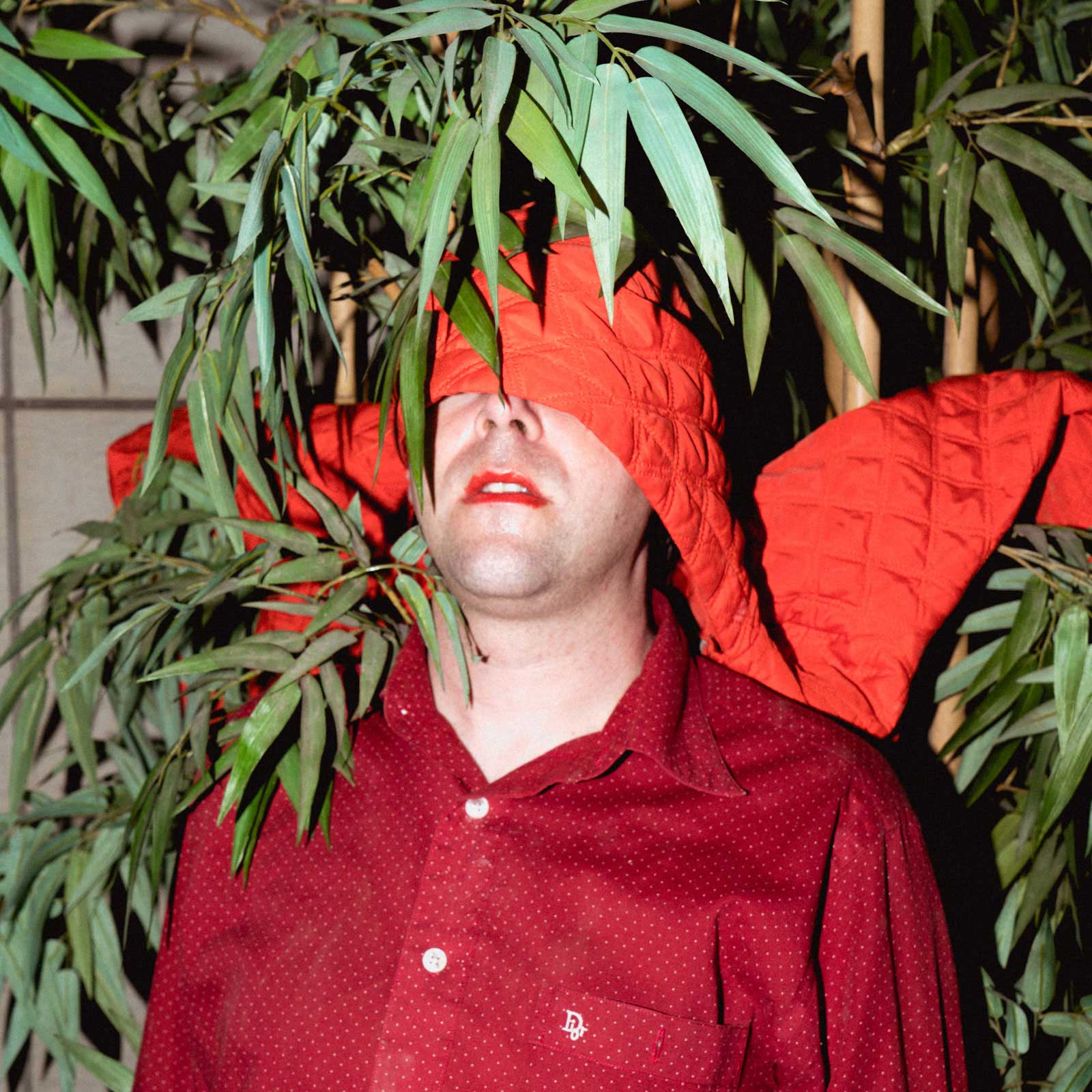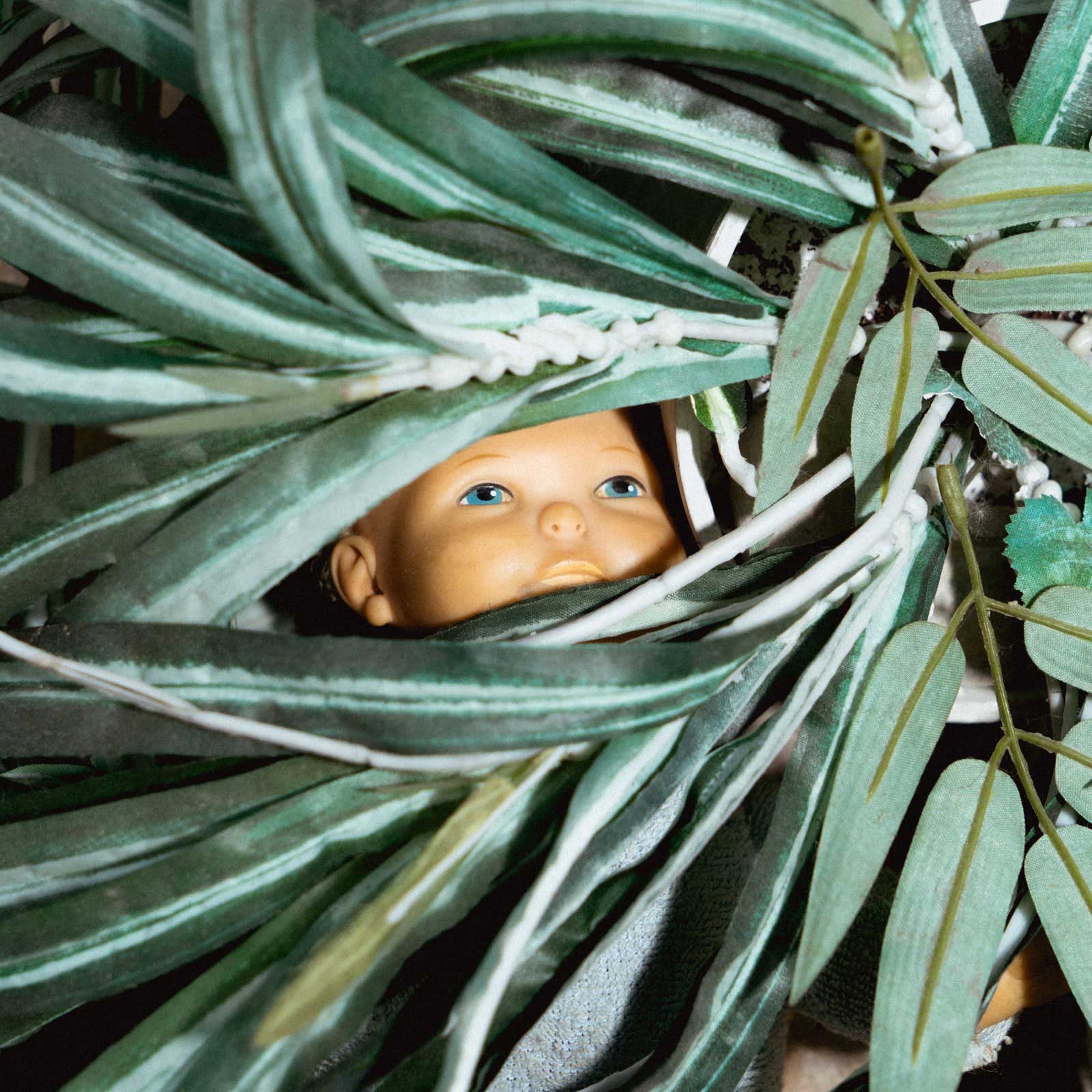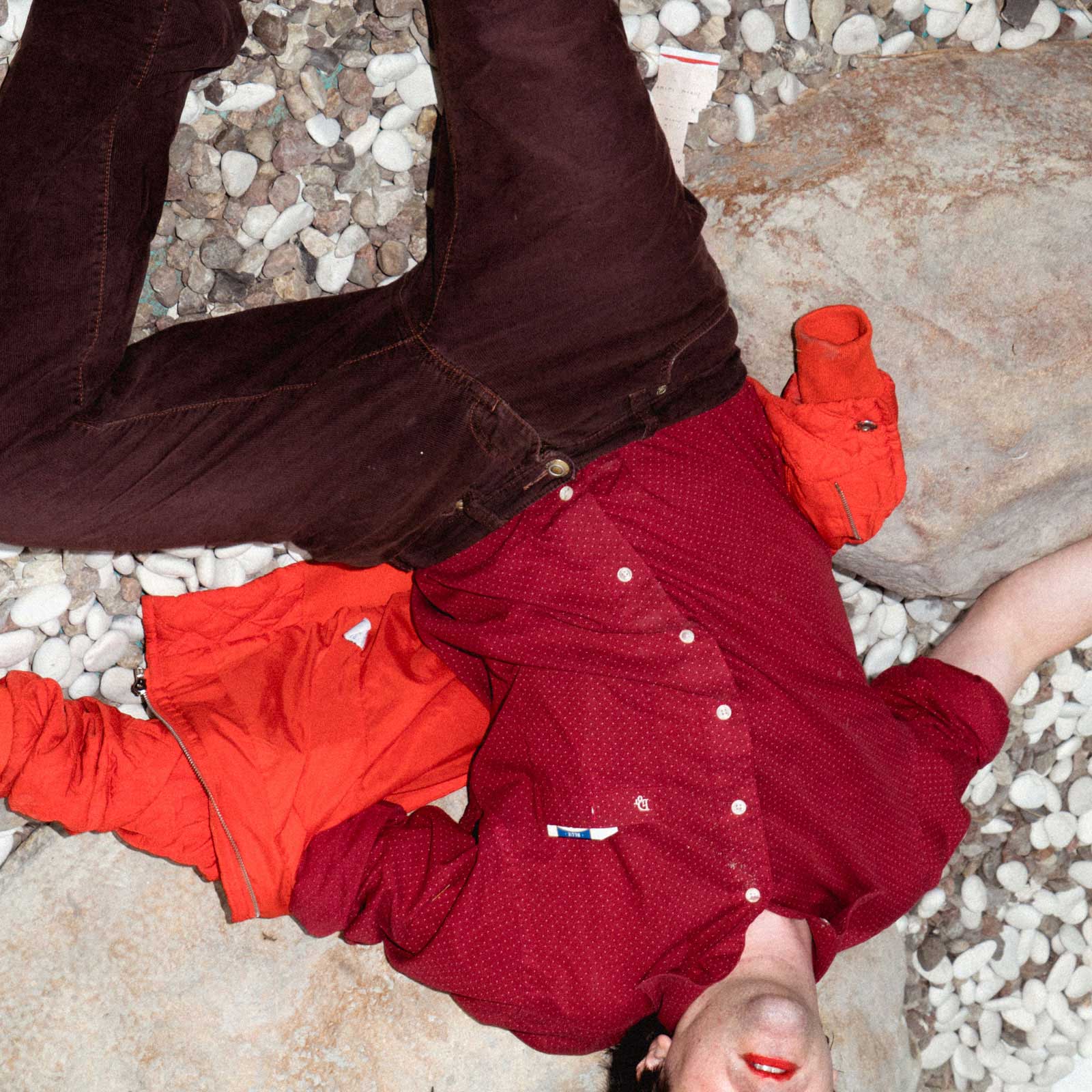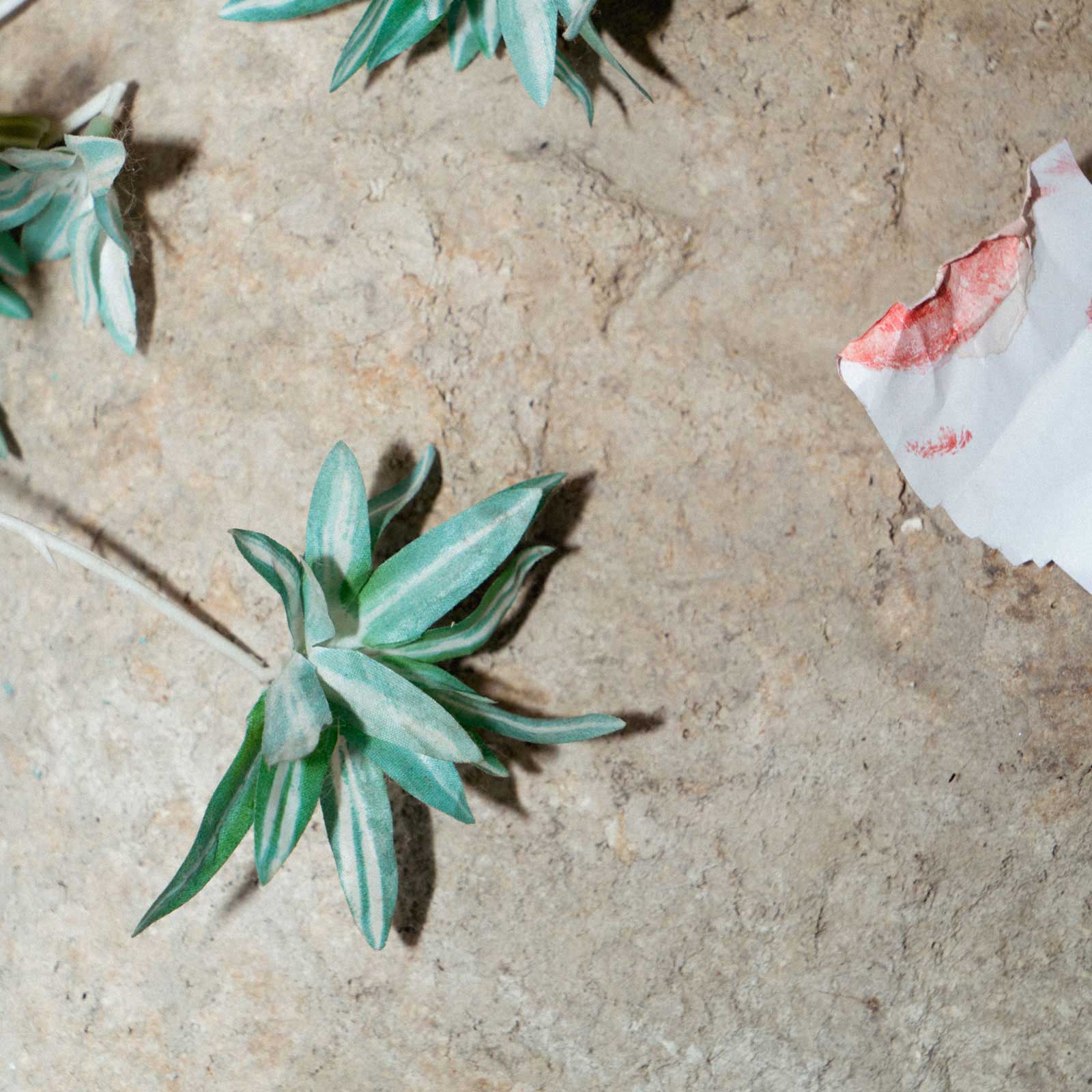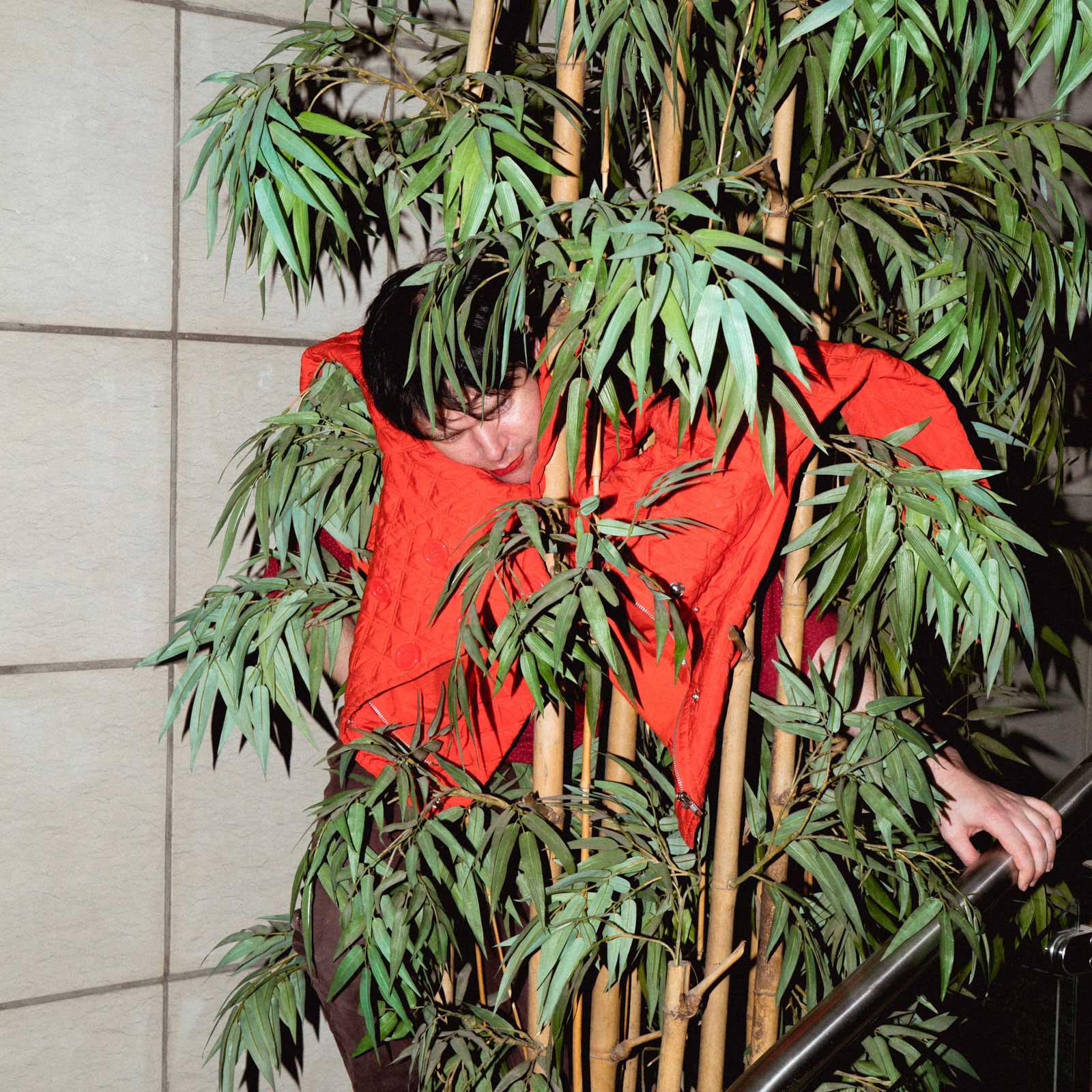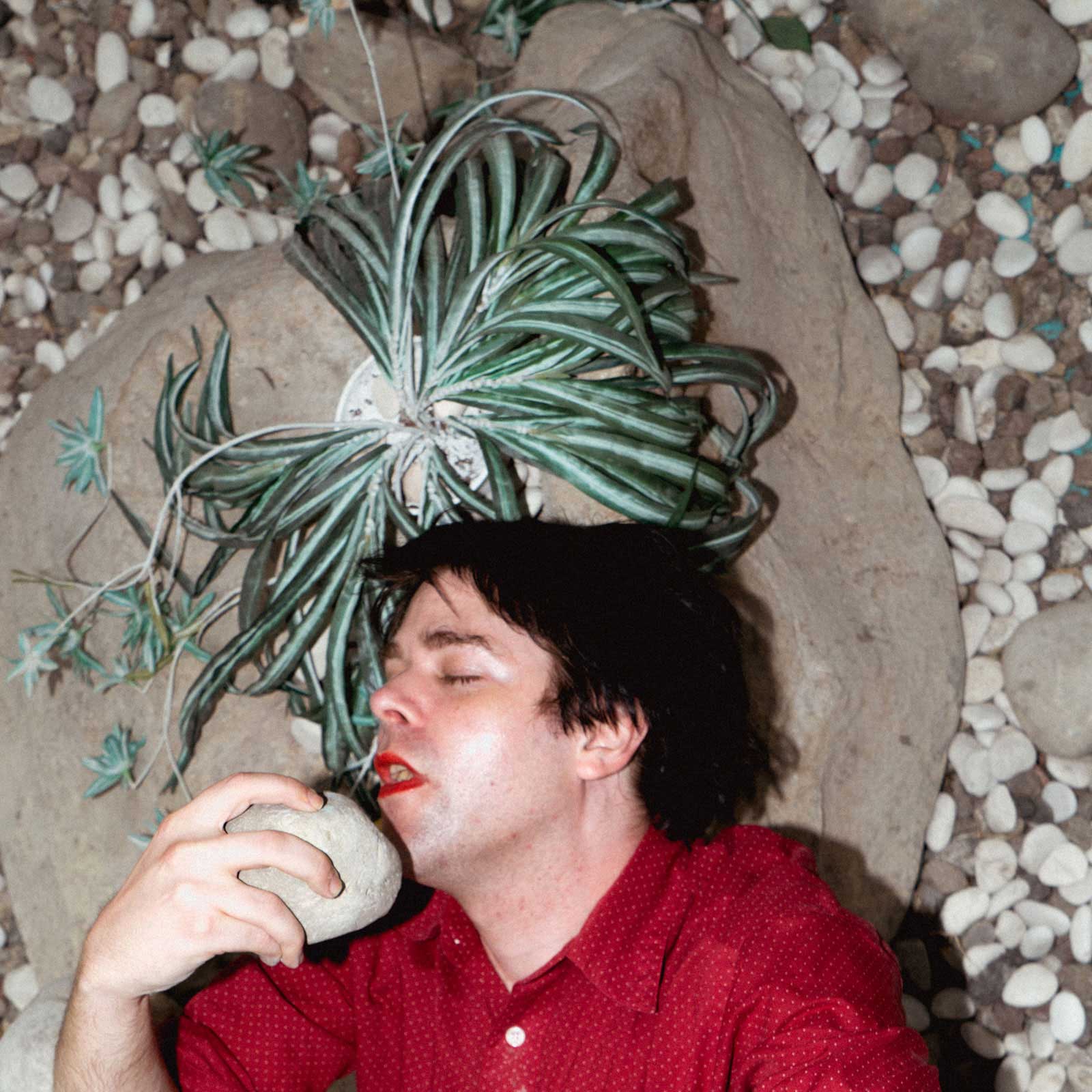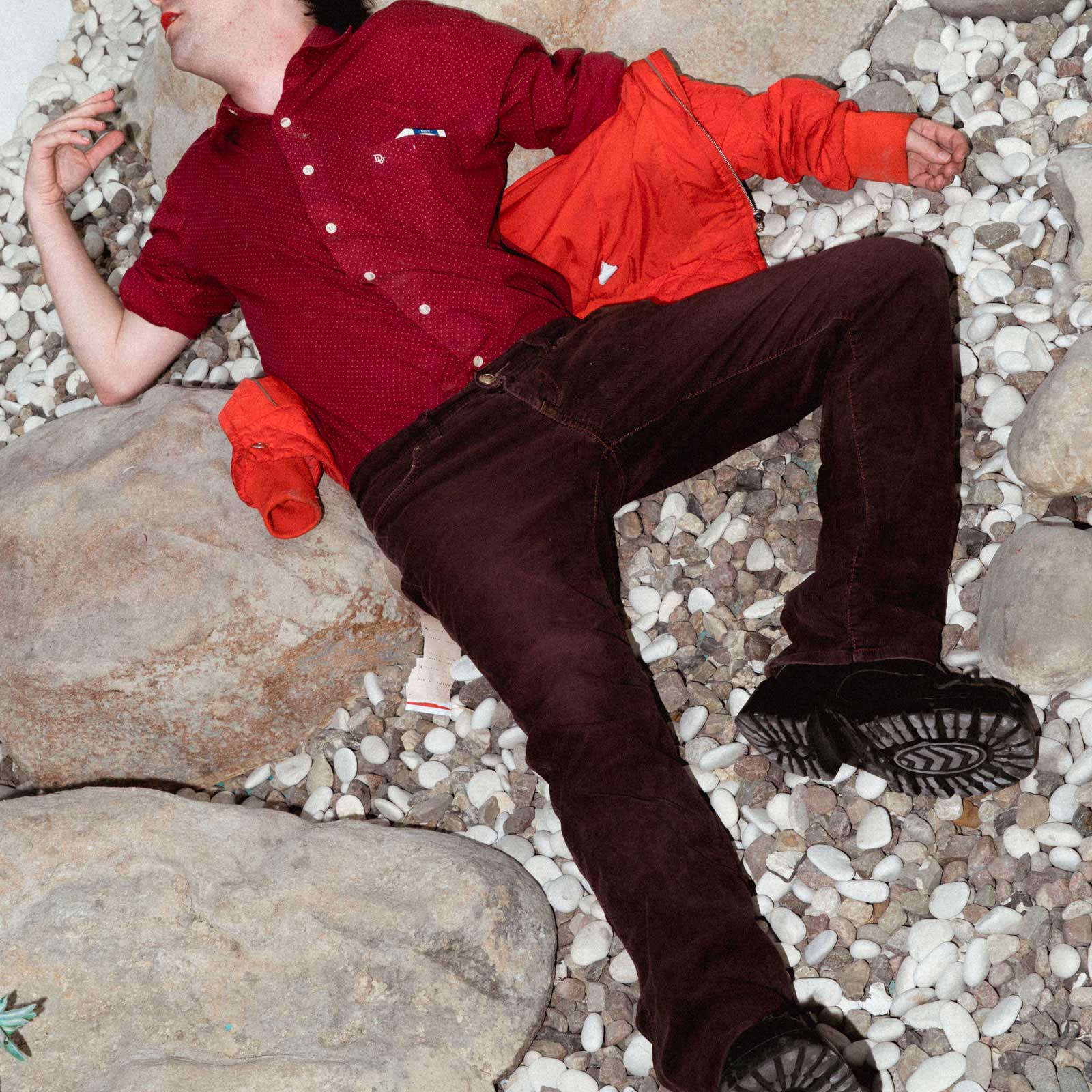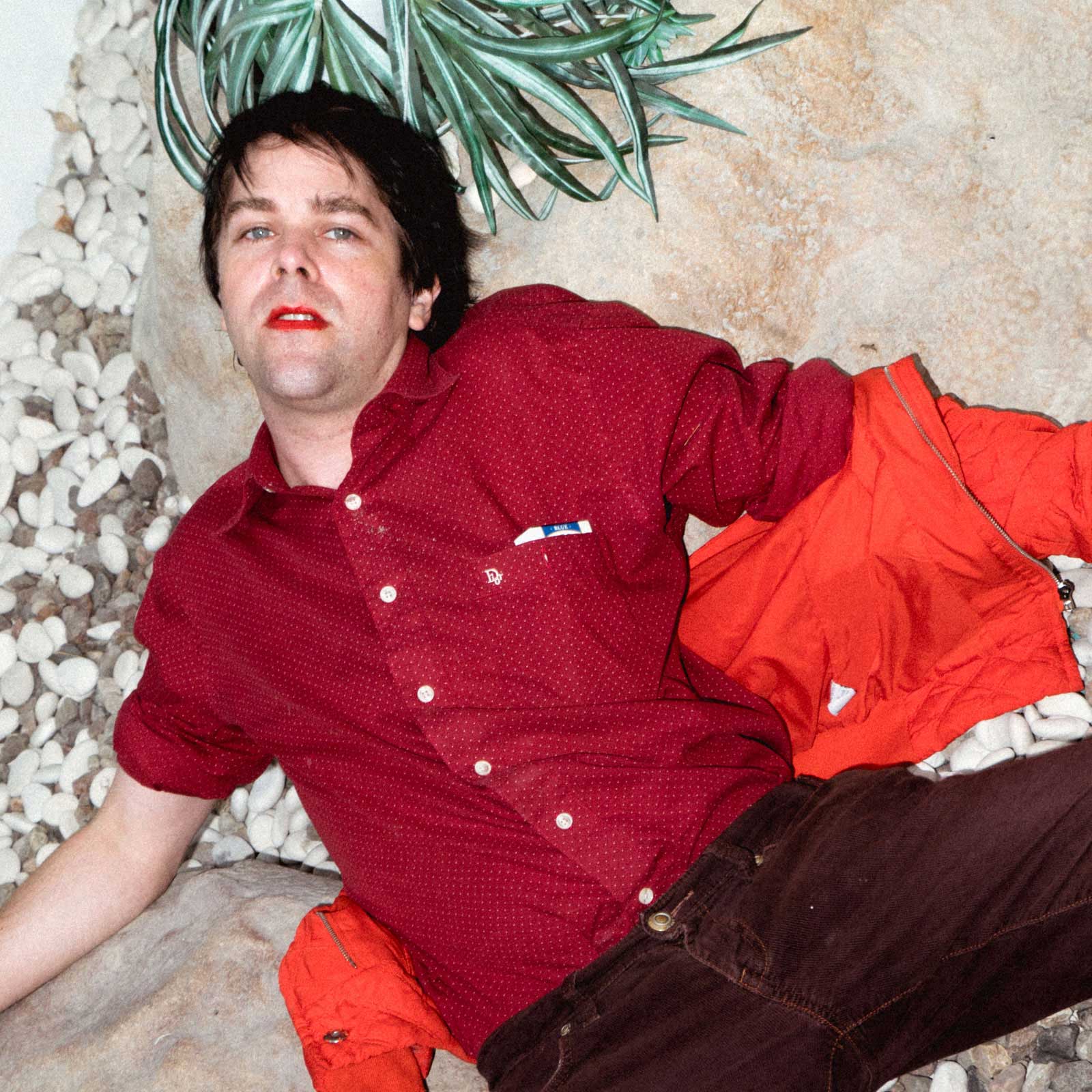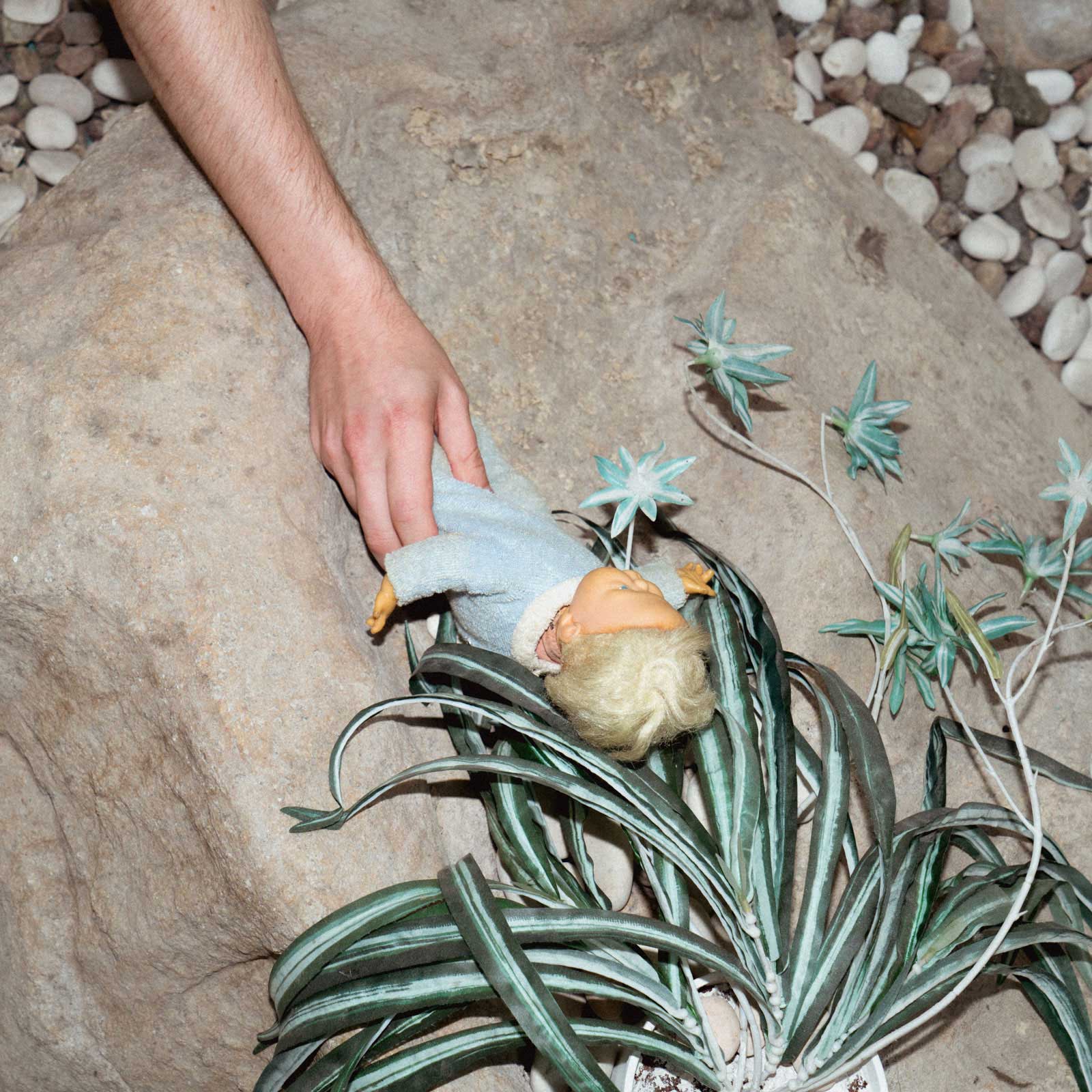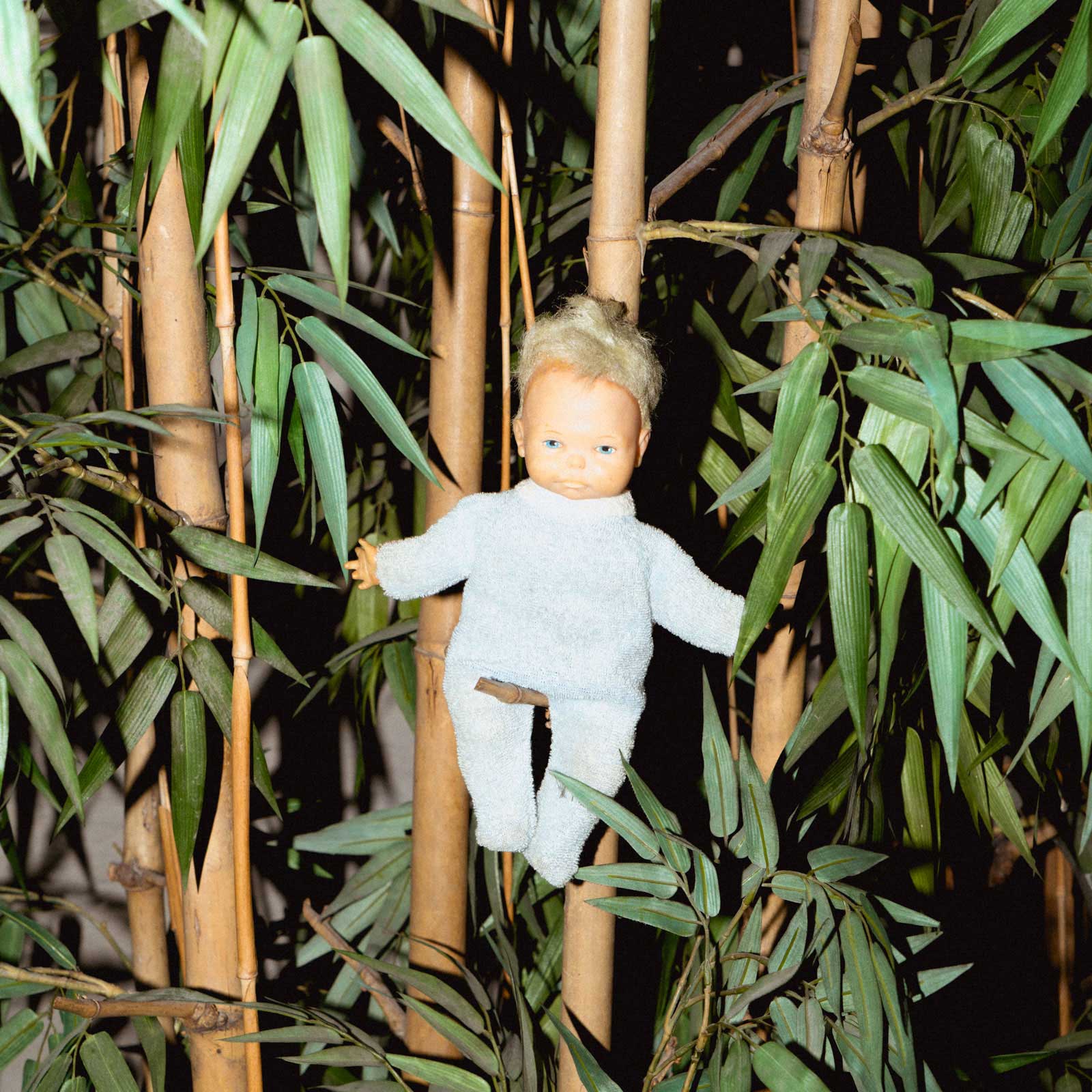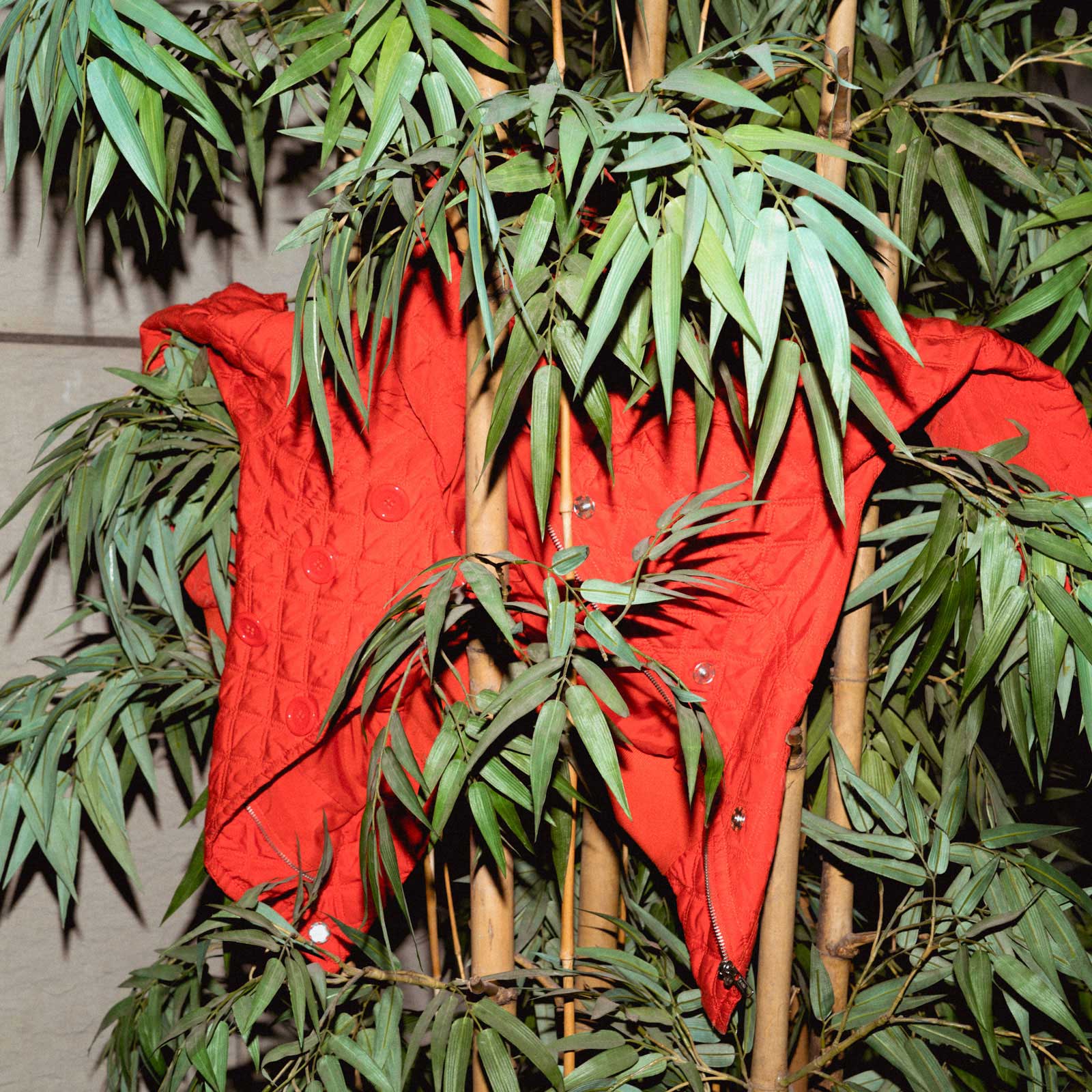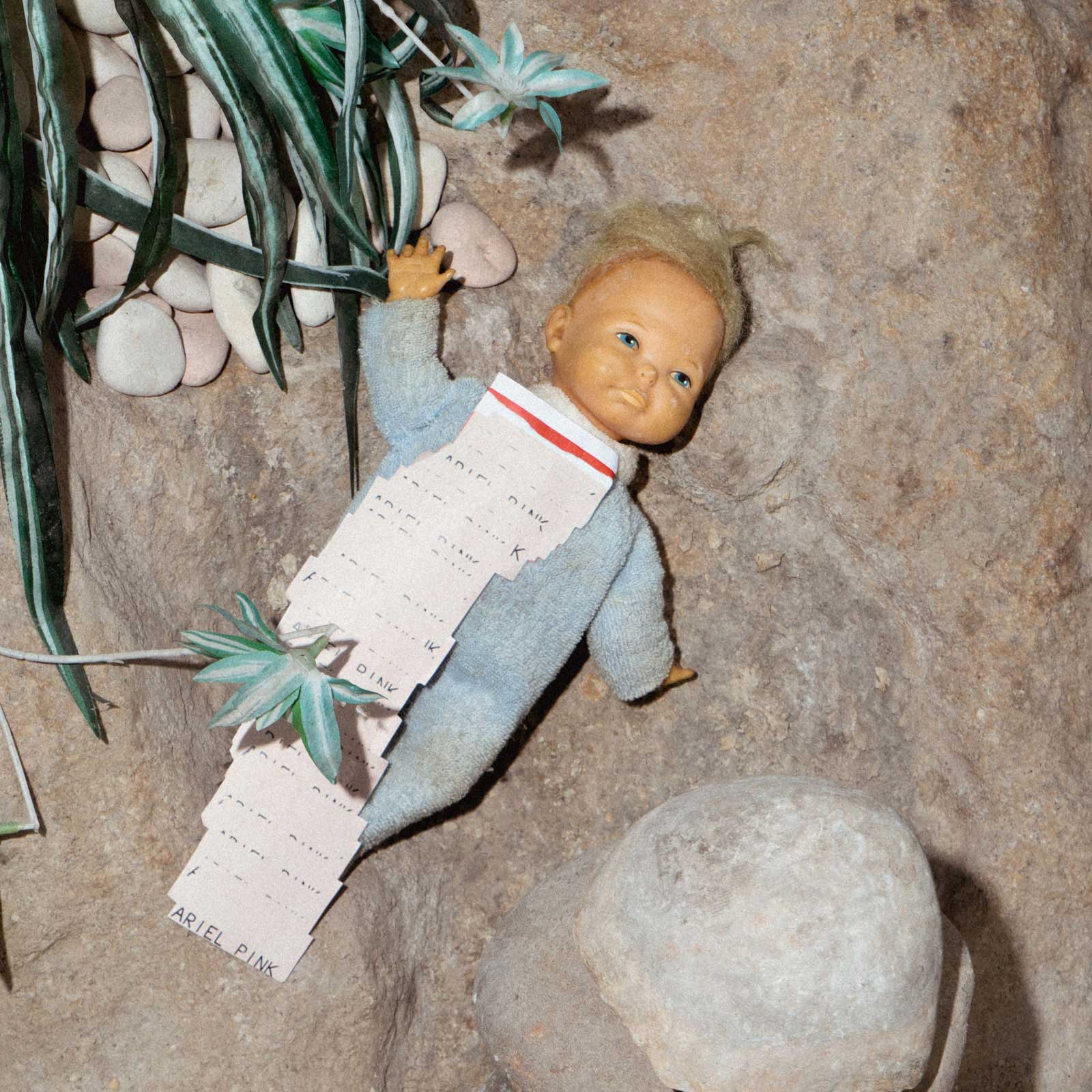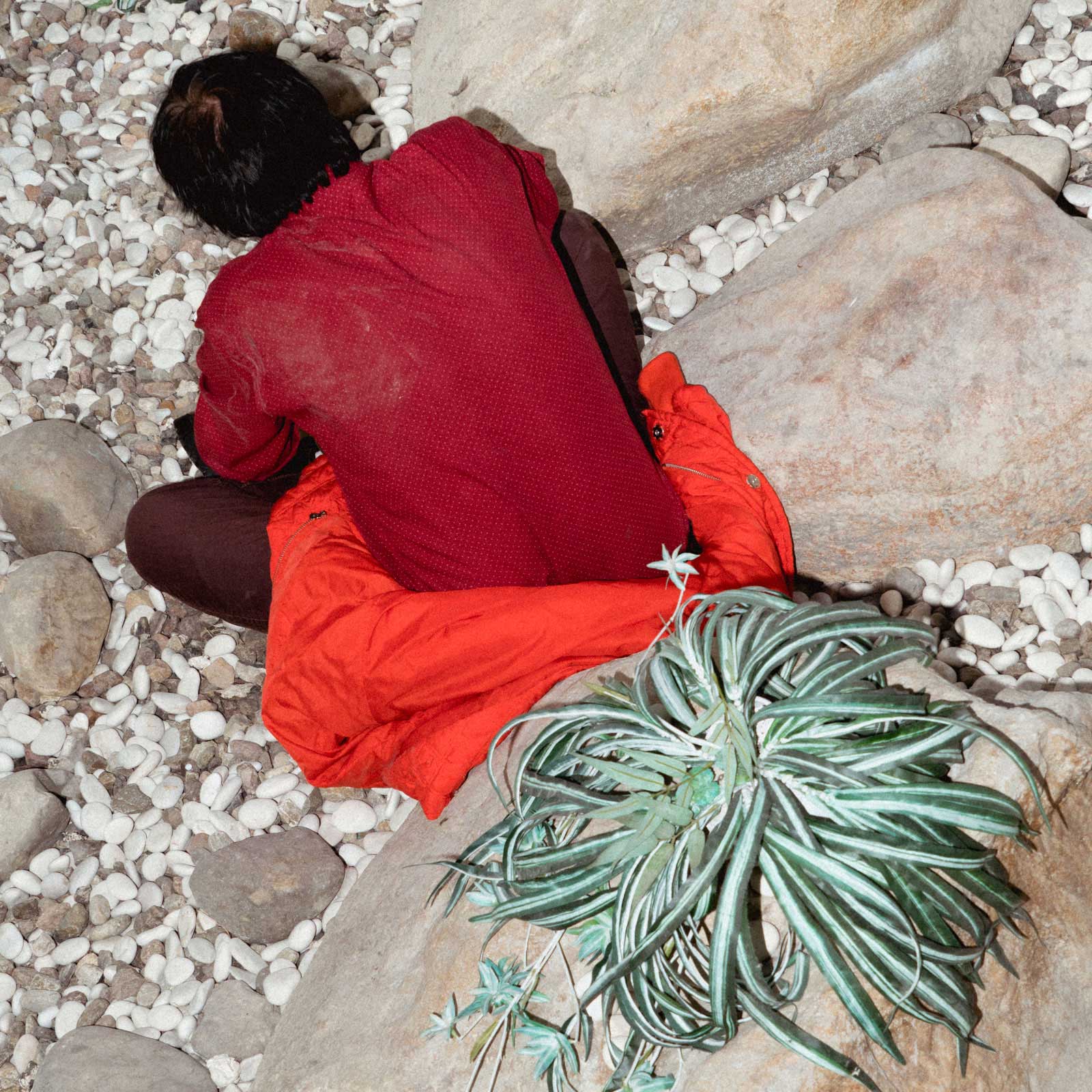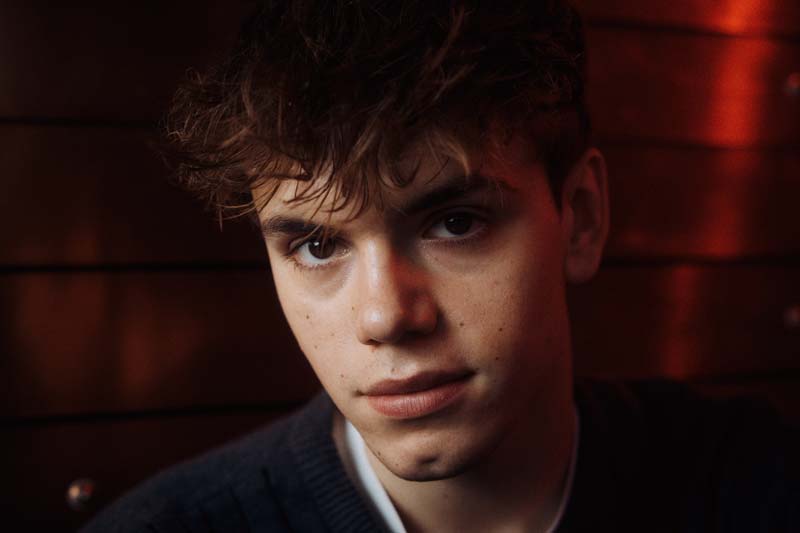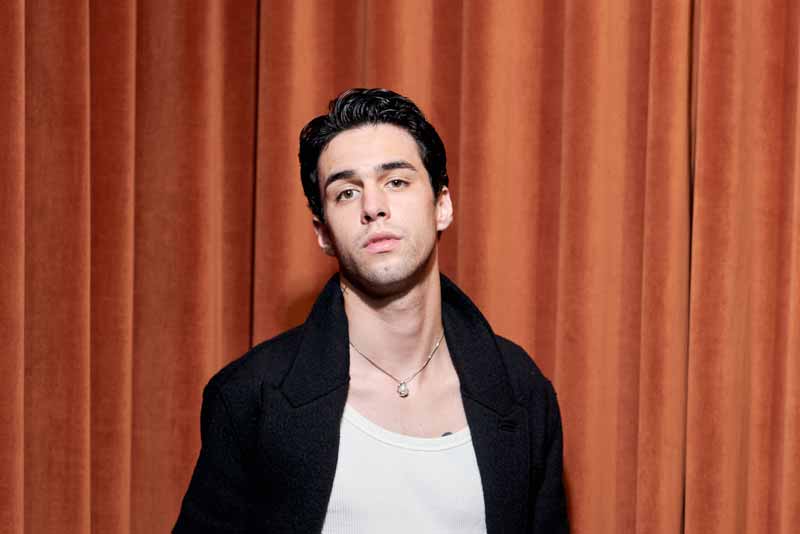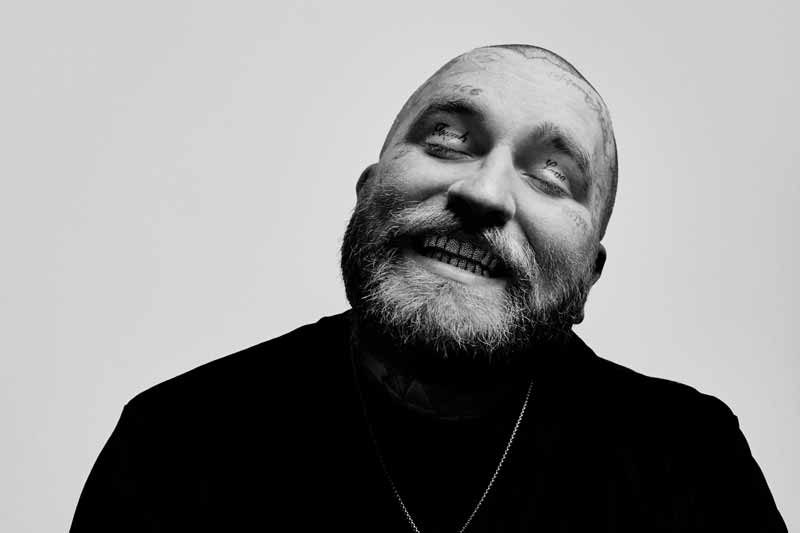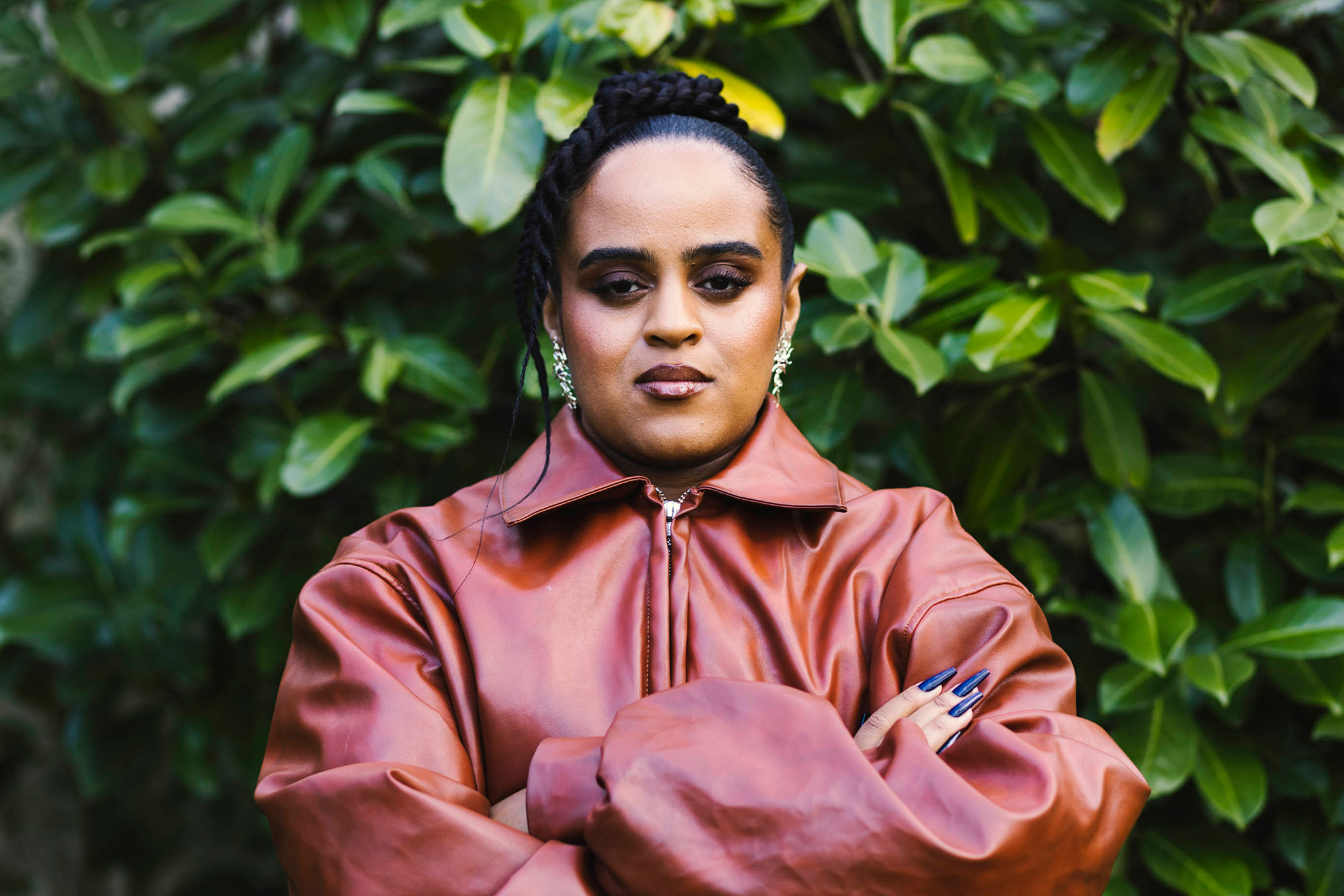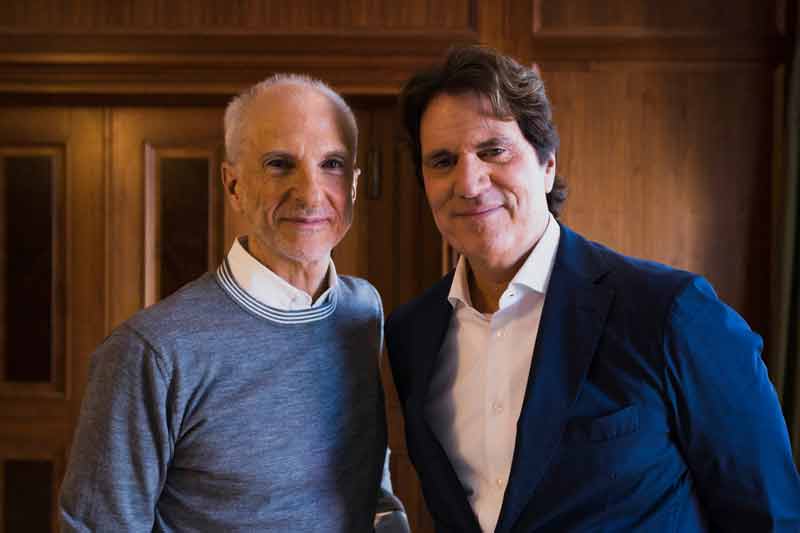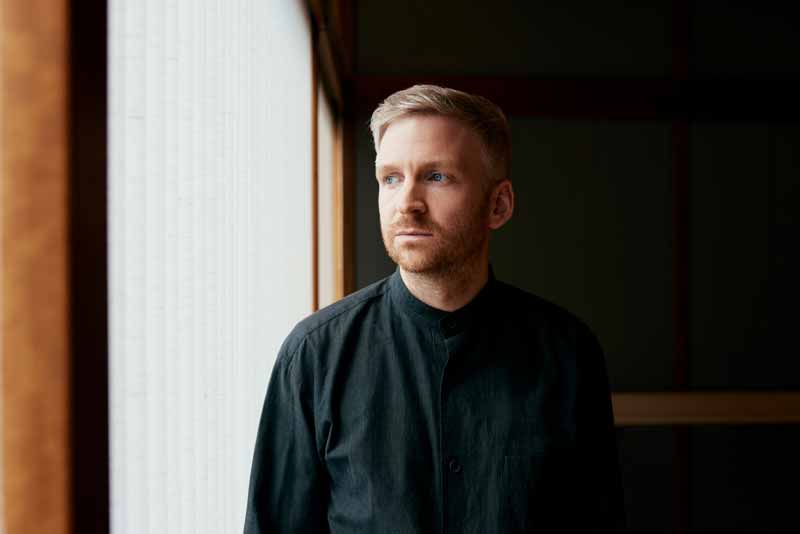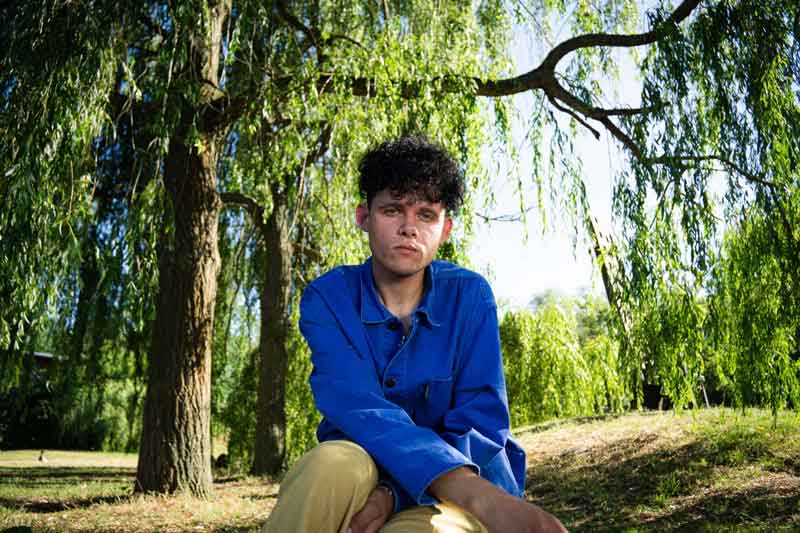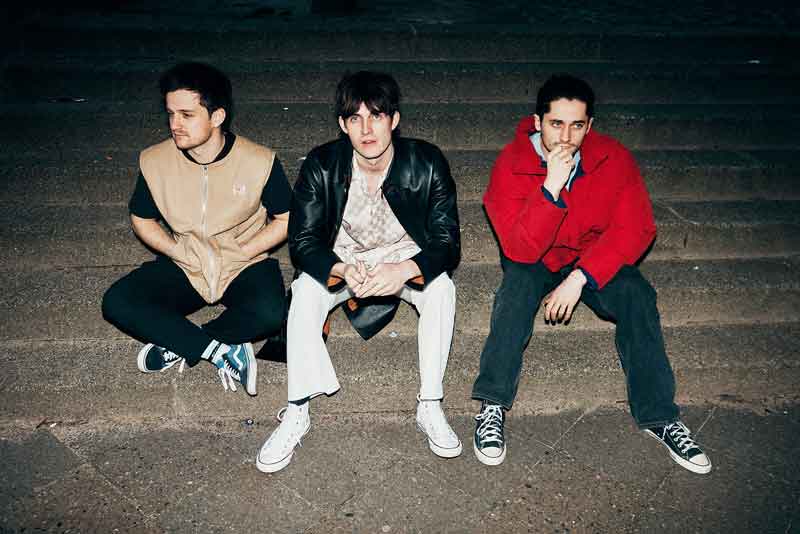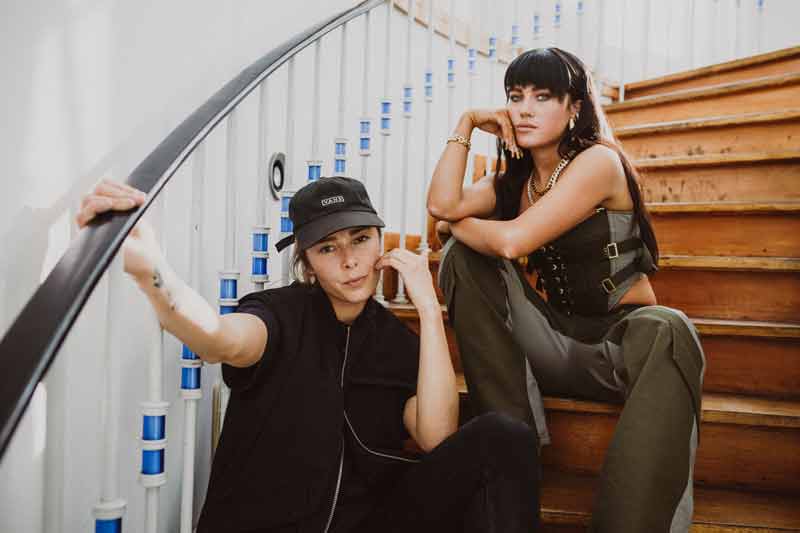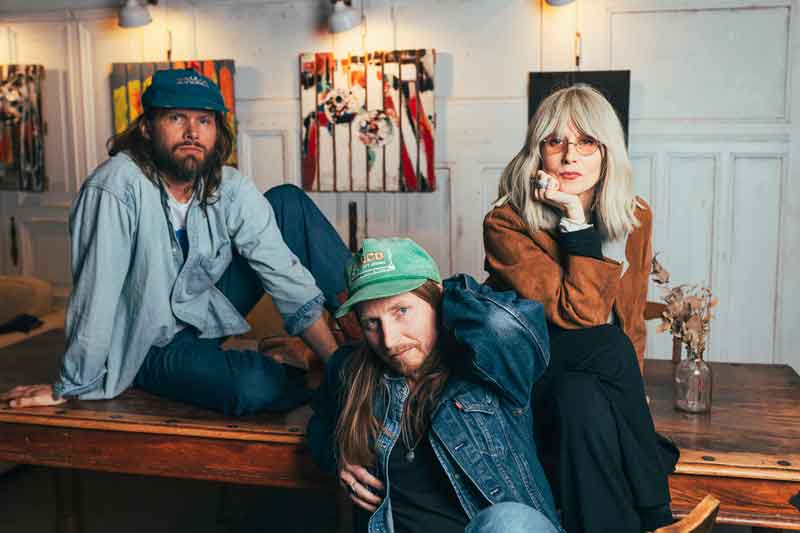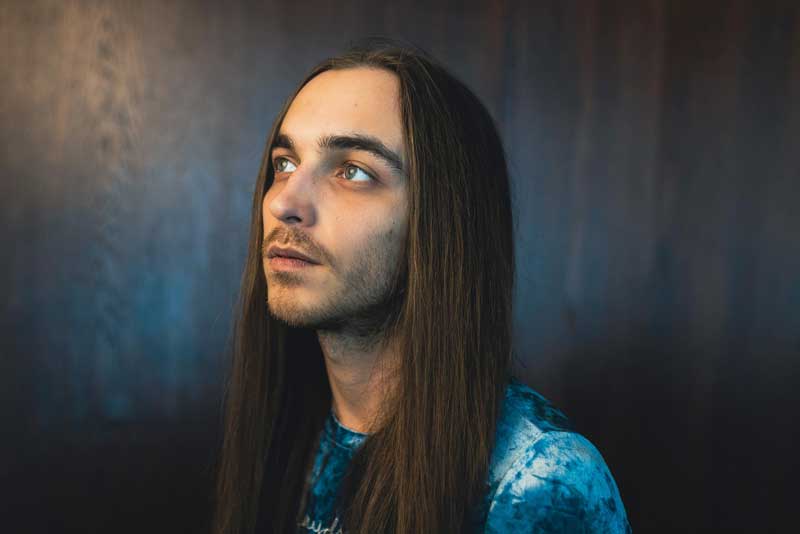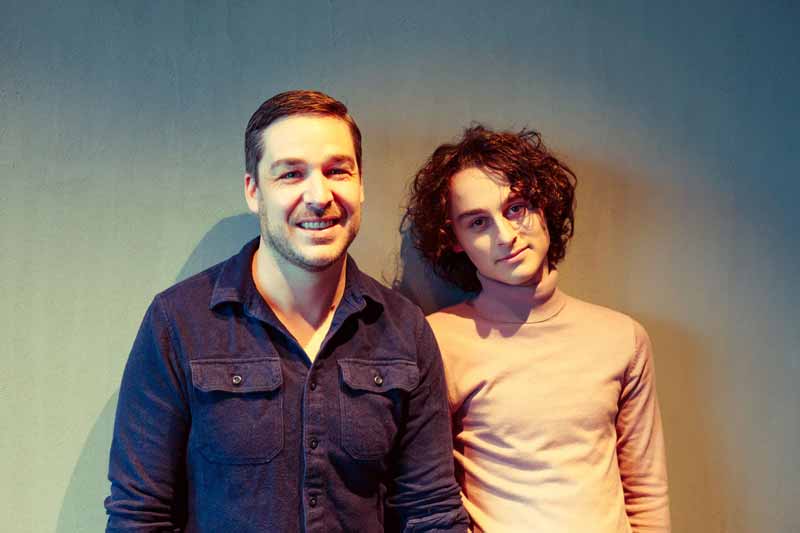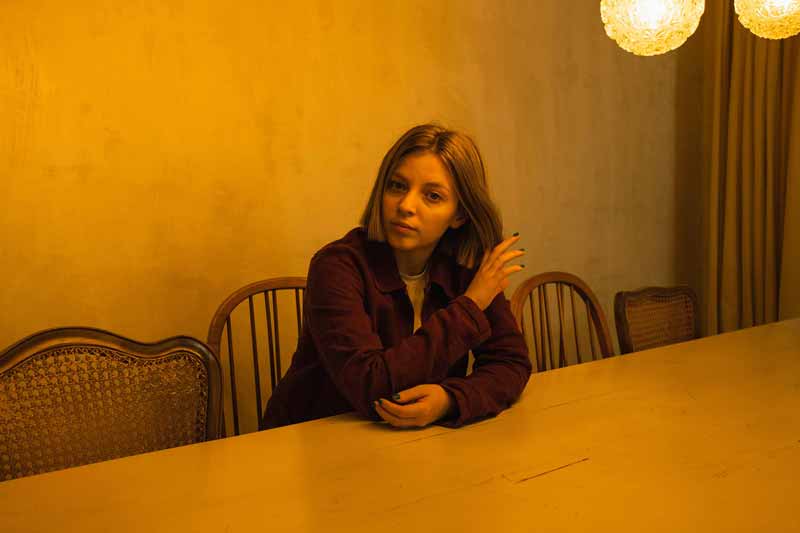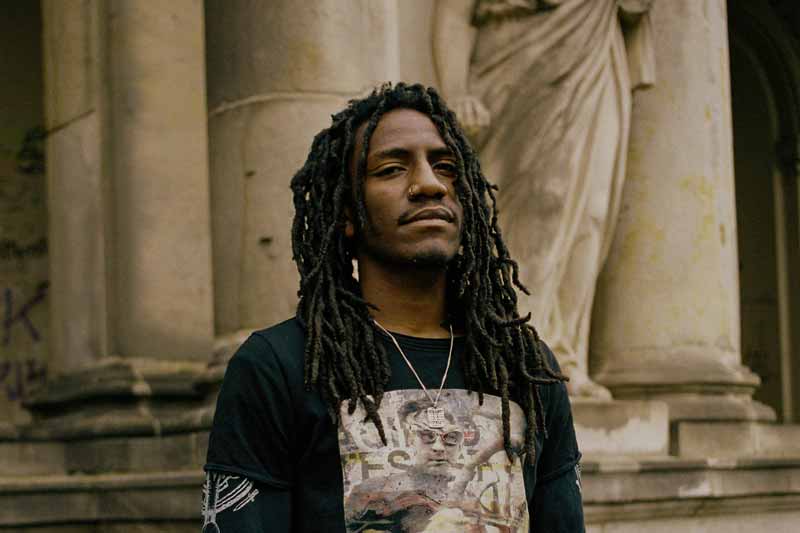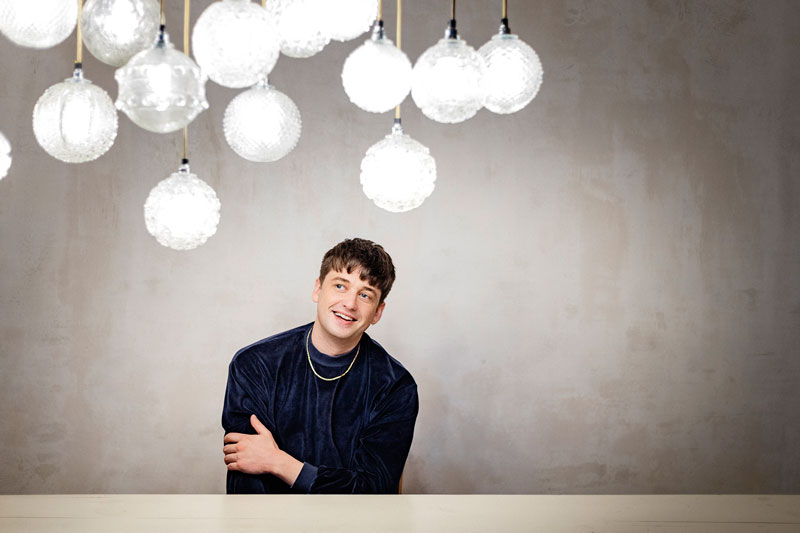Interview — Ariel Pink
Forever Five Years Old
Whether he is seen as a misunderstood genius or a controversial artist, LA-based Ariel Pink is undefinable. We navigate through his fascinating mind and enter a domain filled with random rants, music, and the constant battle of having to explain yourself.
26. September 2017 — MYP N° 21 »Ecstasy« — Interview: Christina Heckmann, Photography: Moritz Jekat
After his last full-length release in 2014, Pom Pom, Pink is about to unveil the follow up, his 11th studio album “Dedicated to Bobby Jameson”. Having started recording on cassette tapes in his bedroom in the late 90s while attending Cal Arts he has since come a long way writing, performing, recording, and producing a great experimental body of art. Having been labeled as the godfather of chillwave, the inventor of glo-fi, Pink grew into a musician known for his weirdness and unpredictability, spinning an alternative to reality for himself and his listeners.
After signing with 4AD, the artist’s experimental style got accepted by a more mainstream following, which coincided with the media turning Pink’s often controversial interview statements into perfect clickbait. The name Ariel Pink and „meltdown“ became some sort of collocation and he seemed to achieve more coverage for something like his chaotic Coachella gig in 2011, than for an album release. Ranting about anything and everything, the media labeled him as racist, misogynist and homophobic, while Pink, being very aware of his reputation, accomplished his mission to hyperbolize his jokes as a means to offend and to agitate. Or maybe he just didn’t give a fuck. If controversy and craziness becomes what people expect from an artist, is the only way to react to embrace the opposite? Or is there just no way you can create your own identity in the musical landscape as there will always be someone else judging and depicting you in a different way than you imagined?
One might think this is one of the reasons there seems to be a certain bitterness surrounding Pink when he talks about the industry and media, and this might just be where he draws a connection to the L.A. musician Bobby Jameson, who is the name referenced in Pink’s album title. Jameson wrote his autobiography and tragic life story in a series of blogs and YouTube tirades, after having been long presumed dead. His writings are tales of troubles that came with the fall after a brief taste of success in the 70s when the musician was being hyped after recording with the Stones and Zappa. Struggling with drug and alcohol addiction, while dealing with his lack of success and searching for acceptance, Jameson spent his life being institutionalised and living in the streets. After 35 reclusive years he suddenly reemerged online to tell his story.
“His book and life resonated with me to such a degree,” Pink states, “that I felt a need to dedicate my latest record to him.” Beginning with the end and ending with the beginning, this concept album also seems to bring another shift in Ariel Pink’s musical cosmos. Having said goodbye to his old label, 4AD, he is now releasing with Brooklyn-based Indie Mexican Summer. For the creation Pink went back to where it all began: his bedroom. By simplifying the recording environment, it seems he also rediscovered the freedom of the past as well as achieving a different mindset over the years: more profound and away from the overly eccentric, but still, Pink is confidently keeping his familiar formula of following his own rules alive.
Well aware of his aversion towards interviews, we are excited but admittedly also apprehensive to meet Ariel Pink at the Michelberger hotel in Berlin. Surprisingly comfortably, we ease into a chat about false goals of fame, the power of music to evoke states of ecstasy and get a tiny insight into what the genius behind Ariel Pink, the man born Ariel Marcus Rosenberg, is all about.
Every time I end up in a corner answering the same questions about things that I didn't fucking want to talk about.
Christina:
Ariel, I have to admit I have been biting my nails in anticipation of this interview. If I trust my research sources, you’re going to hate every single second, every question, no matter how hard I am going to try. I refuse to believe that, so tell me this isn’t true.
Ariel:
I have probably done a thousand interviews in my life and I think they all say that about me afterwards. They don’t necessarily have to be bad interviews, but generally, thinking of them as interviews is where the problem begins. It automatically makes me feel like I am repeating the same things over and over again, which is very boring for me. Mostly because the questions people ask are the same. They somehow do their research to find out what questions have been asked and end up asking that very same question. No! Don’t do that! It’s already been answered! It’s exactly what they shouldn’t ask. So every time I end up in a corner answering the same questions about things that I didn’t fucking want to talk about. There is no story there. Instead, they should ask me something about astronomy or something else I’m interested in, and not ask me about animal cruelty or anything I don’t fucking want to talk about.
Christina:
Duly noted. It seems though people want to hear your opinion on absolutely everything and most of all, they want to see you react.
Ariel:
The thing is, they already know my opinion. It’s more that they want to provoke me, it’s like as if they tell a dog to bark or to jump, they want to throw me a bone and see me get mad. They just want me to go like (pretends to be angry): ‚You guys, this is fucking pissing me off, because this is what always happens in interviews.‘ So yeah, I do end up saying that every fucking time. See, now I am pissed off. (laughs)
Nobody needs to be afraid of me. I'm like a fucking human Chihuahua, the nicest guy in the world.
Christina:
Argh, damn it. I already messed it up. I can see how this gets annoying, being put on a pedestal on the one hand and on the other hand getting provoked into delivering perfect material for a clickbait article.
Ariel:
What has become clear to me is, they don’t care. It doesn’t offend me, because I don’t really want people prying into my life, therefore I am glad that they don’t care. It just seems like a massive waste of time. The thing is, they want me to make it interesting for them. They want ME to do that. I already made the record for them! Is that not enough? Why do I have to be the creative one, why don’t they create an interesting question and then it will be an interesting interview. No, everyone just wants me to do all the work. One of the interviewers today said: ‘You know Ariel, they are afraid of you.’ Nobody needs to be afraid of me. I’m like a fucking human Chihuahua, the nicest guy in the world, there is no reason to be afraid of me.
Christina:
They are all looking for that stereotype though: the damaged, fragile musician, the romanticised idea of the rock outsider. In a way you’re giving them exactly what they want.
Ariel:
It’s true! That’s me! I am totally that person! That’s why I’m an easy target too, because I get emotional about anything.
Nothing sounds more boring to me than a typical »rock story«.
Christina:
So I figured you have this strategy of diverting the conversation towards talk about your music rather than yourself. Or diverting it towards somebody else, like for example Bobby Jameson, the artist you dedicated your album to.
Ariel:
It’s the best strategy! Guess what the first question is, that everybody is asking: ‘Who is Bobby Jameson?’ If this question comes up, I just talk about it forever. They don’t get any opportunity to ask me about anything else. We won’t talk about me, which is great because I can talk about Bobby Jameson all day long and I don’t fucking want to shoot myself in the head afterwards.
Christina:
At the same time, you obviously wanted to bring attention to Bobby Jameson and his life. I didn’t know anything about this guy until I heard about your album. As soon as I looked up his blog I was captivated by his tragic story.
Ariel:
Yes, that was of course the main reason. It wasn’t because of his music to be honest, I don’t care about his work. I listened to a lot of it but I honestly don’t like it. It’s the blog I was sucked into, it spoke to me. I don’t normally enjoy reading rock autobiography anymore since high school. Nothing sounds more boring to me than a typical „rock story“. But there is something about the way Bobby writes. He is not even a real writer, he is just grabbing you by the collar, saying ‚Listen man, I’m just telling you this stuff because this is what happened.’ He is just desperately trying to explain himself to the reader.
The secret's out, the veil is lifted. Whatever mystery was there at the very beginning got fucking overexposed.
Christina:
Fortunately for him he found the internet and used it as a gateway to finally explain himself after never having had that chance before. He died two years ago, did you find out about him before or after he passed away?
Ariel:
Right after. I was surprised I never heard about him before. I know a lot about music, but I never heard about him. I checked out some songs and went to his blog and I started reading his story… If he hadn’t written it, nobody would have known any of what happened. He actually wrote the story, the artist himself wrote the facts. So now the facts are his. If he had not written the blog, he would have died and nobody would have known any of it. He just did this at the very end of his life. To me this is just so mind-blowing. Who gets to write their story, their immortality? Everybody else writes it for you. Nobody lets you fucking have that.
Christina:
He took control of something he never felt he was in control of before. How come this resonated with you so intensely?
Ariel:
He took control of his own fate in the smallest way. It affected me, as I sometimes grapple with this. I wanted to do certain things when I started. I wanted to release records and make music to escape into fantasy land. Nobody would know it’s me. I would use pictures that didn’t look like me. I felt I was in control. I would change my voice, completely make a fantasy reality, just pretend. But then all of a sudden, somebody is there snapping a shot of me in broad daylight and it’s fucking terrible. Or people see a show and the sound is awful and they go like, oh no, we did not want to see this. The secret’s out, the veil is lifted. Whatever mystery was there at the very beginning got fucking overexposed.
I wanted to be totally misunderstood. I wanted to be the worst thing ever.
Christina:
Do you wish you could have kept going like in the very beginning? Do you think there could have been a way to keep up that world?
Ariel:
The art form that I got involved with in the first place was the fantasy of the anonymity and being able to control this art form. It took me a while to learn it’s not about that, these are in fact just control issues. You have to face all these realities that you can’t control. That is a humbling experience which probably made me a better person than what I would have been otherwise. I throw myself into these things now and I am ok with it for the most part. It was very much a childish feeling that I had back then, this need to feel invisible. My identity used to be rock solid. It was me against the world. Making music was a revenge fantasy of some sort. In my mind I knew what I was doing and I was doing something nobody else had ever done. I was completely full of shit. I thought I was a total prank on the world, that’s what I wanted to be. I wanted to be totally misunderstood. I wanted to be the worst thing ever. But in the end it wasn’t any of that. Now it’s just so normal. People do it better than I do. I don’t want to own this thing.
I just don't have an identity anymore.
Christina:
You know how Bobby Jameson said that the worst addiction in his life was fame. He said he ‘lived to tell how the pursuit of fame is as deadly as any narcotic’ he has ever used. This seems to be something you learned as well, what is it about seeing your name written in papers?
Ariel:
First of all, Jameson’s whole thing was trying to get his name consistent. I was dealing with the same thing with the „Ariel Pink’s Haunted Graffiti“ issue. It still comes up! Even when I explain it to people it seems to make it worse. They want me to explain the persona „Ariel Pink“. And I am just like, come on, let me explain it to you again: there is no Ariel Pink! There is Ariel Pink’s Haunted Graffiti. I started responding to Ariel Pink because people thought of me as that. And then when I got the band they thought that band was Haunted Graffiti. But it was never a separate project. Ariel Pink’s Haunted Graffiti was a solo project. It’s as simple as that. The band is made out of players, like hey, Michael Jackson has a band too. They would have never asked him about his band, would they? My name is Ariel Rosenberg, there is no persona, that’s it. Ariel Pink is not a fantasy alter ego, it’s me as a person.
Christina:
It’s easy to see why the media latches on to those ideas though, can you really blame them?
Ariel:
No, but that’s why I basically killed of the Haunted Graffiti part, because it was just too complicated. I just thought, okay, just make it Ariel Pink. Now it’s just this. And people say, oh, he doesn’t have a band anymore… I thought I got the winning name back then, Ariel Pink’s Haunted Graffiti. With that name nobody would ever question who the boss is. My fucking name is in the title! But I took that for granted. Actually, somebody did come out of the band and said they were a founding member of that band and I got fucking sued for it. And they were gonna win because I took it all for granted. It was a humbling experience, my whole plan went to shit. I didn’t want to spend the rest of my life explaining what the band name thing was. That’s not how I envisioned how this would go when I first started out! That was not what I wanted and I didn’t have any control over it. So now I just don’t have an identity anymore. I am basically a middle aged guy and I am doing this for the money because I don’t have any other income. I don’t know how to do anything else.
Christina:
That sadly sounds like you surrendered. Is this what the music business ends up doing to you? The same as what it did to Bobby according to him?
Ariel:
No, no, not at all. I am not Bobby. Even though…
Christina:
…one might say there is a little bit of Bobby in all of us.
Ariel:
I see Bobby in me before I was discovered by the Animal Collective. Bobby is basically me before I got released on Paw Tracks. As soon as that happened I got a little bit of attention and I was like, oh, that’s it. That’s it! I was twenty-two years old and I got reviews and people acknowledged me. I thought, that’s all it was? What am I going to do now? I didn’t realize how much I was dying for acknowledgement and attention. I didn’t realize I was operating below zero and this little attention brought me to actual zero. I stopped writing every day like a maniac. I basically stopped writing songs for five years after that. Instead, I just focused on learning the songs that I had written in the years before and teaching them to the bands so we could play live, which would be the necessary step in order to get a real record deal. You need a live following for that. So that’s what I did. I focused on the live playing and I didn’t even know if I would ever write a song again.
I’d rather not do music and be happy.
Christina:
Did you need a break from it because you also didn’t enjoy doing it anymore or was this just something you felt was necessary to achieve success?
Ariel:
At that time I wasn’t inspired. I wasn’t driven, I wasn’t desperate to write. Inspiration for me was normally coming from a bad place, it was always a means to escape. In a way I am glad that I went through that stage because, honestly, I’d rather not do music and be happy. Though now, I am a lot happier knowing I can also be happy about making a song, even if it happens more infrequently. But hey, I still got it, almost 40 years old and I can still do it. (laughs)
Christina:
Writing music as a means to escape brings me to the theme of this MYP edition: Ecstasy. Important to mention, we are talking about the emotion, not that particular drug that carries the same name… Is ecstasy for you something you find when making music?
Ariel:
No, I just take Ecstasy. (laughs)
Christina:
So annoying how the word has entirely been taken over by the drug! Not SEO friendly at all. Unfortunate, as it is actually such a nice expression.
Ariel:
Yes, the actual word sounds like a crucifixion, like something sacred. E-c-s-t-a-s-y.
I wanted to revisit that old place and create that feeling that I had as a five-year-old and I wanted to stay there. Forever.
Christina:
I like to think of it as something sensual. An experience. A feeling. Letting go and being captivated at the same time. In the Ancient Greek ecstasy was apparently considered the culmination of human possibility…
Ariel:
The ecstatic. I have to tap into that topic, because that is a way that I used to write. I was always trying to recreate that feeling that I had as a five-year-old kid. That feeling of when you were younger and you listened to music and it completely possessed you and you couldn’t explain it. Those were the most amazing musical experiences I had. The older I got, sadly, the more that feeling disappeared. Maybe because I learned more about the music itself. In comparison, when I was young, I never actually learned how to play an instrument. In general, music started going into a different direction at some point. It seemed like it was moving away from emotion. Stupid empty dance music appeared. The 60s got buried, the melodies got buried, they got rid of it, people just wanted to hear fucking: (makes a simple beat noise).Where did all the juicy stuff go? I wanted to revisit that old place and create that feeling that I had as a five-year-old and I wanted to stay there. Forever. That was my plan. The big question was: What if I just stay five years old forever? Just staying with that feeling – that is what art is to me.
